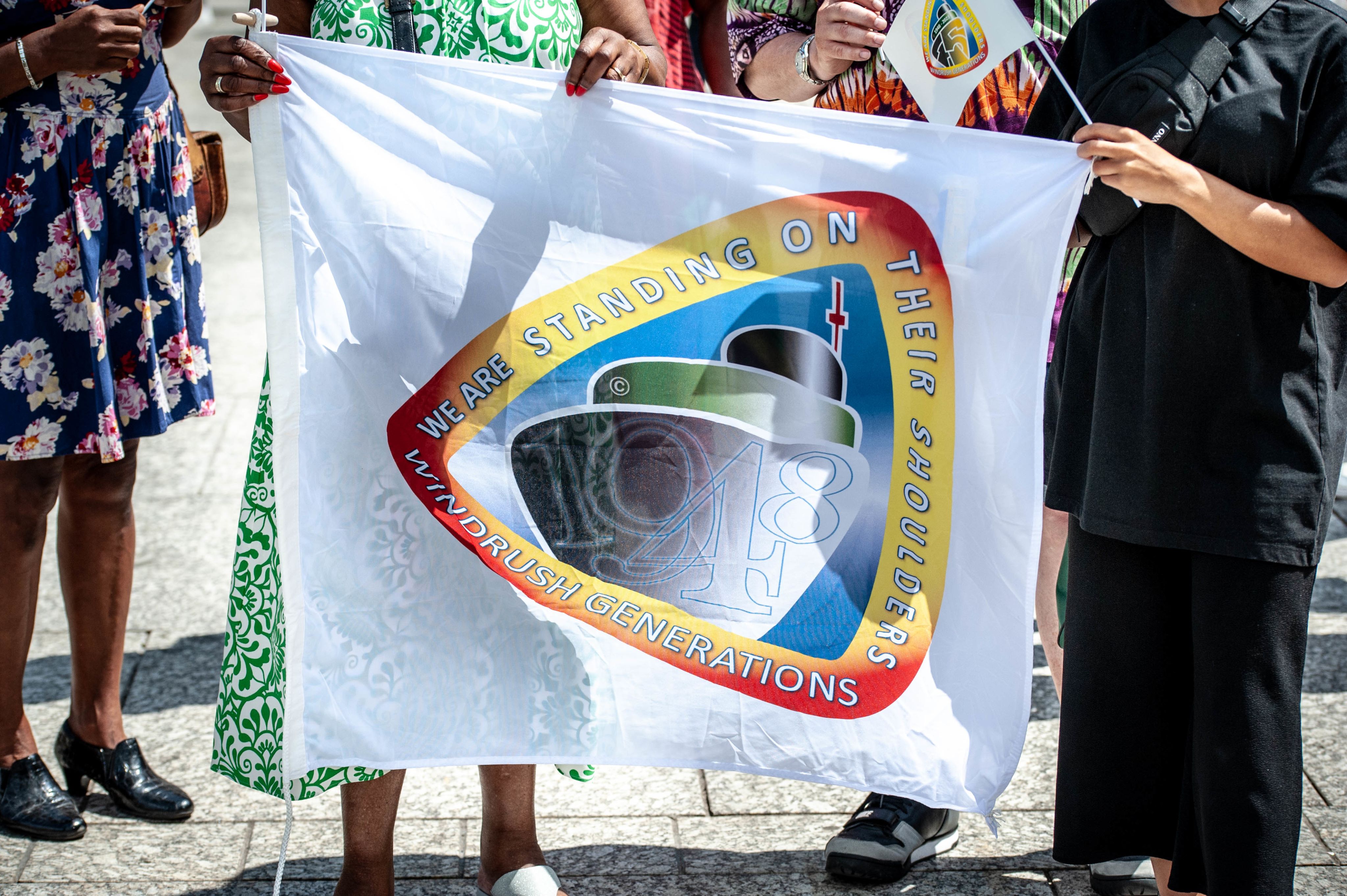Windrush Day 2024
Celebrating Nottingham's Caribbean and Black British Heritage
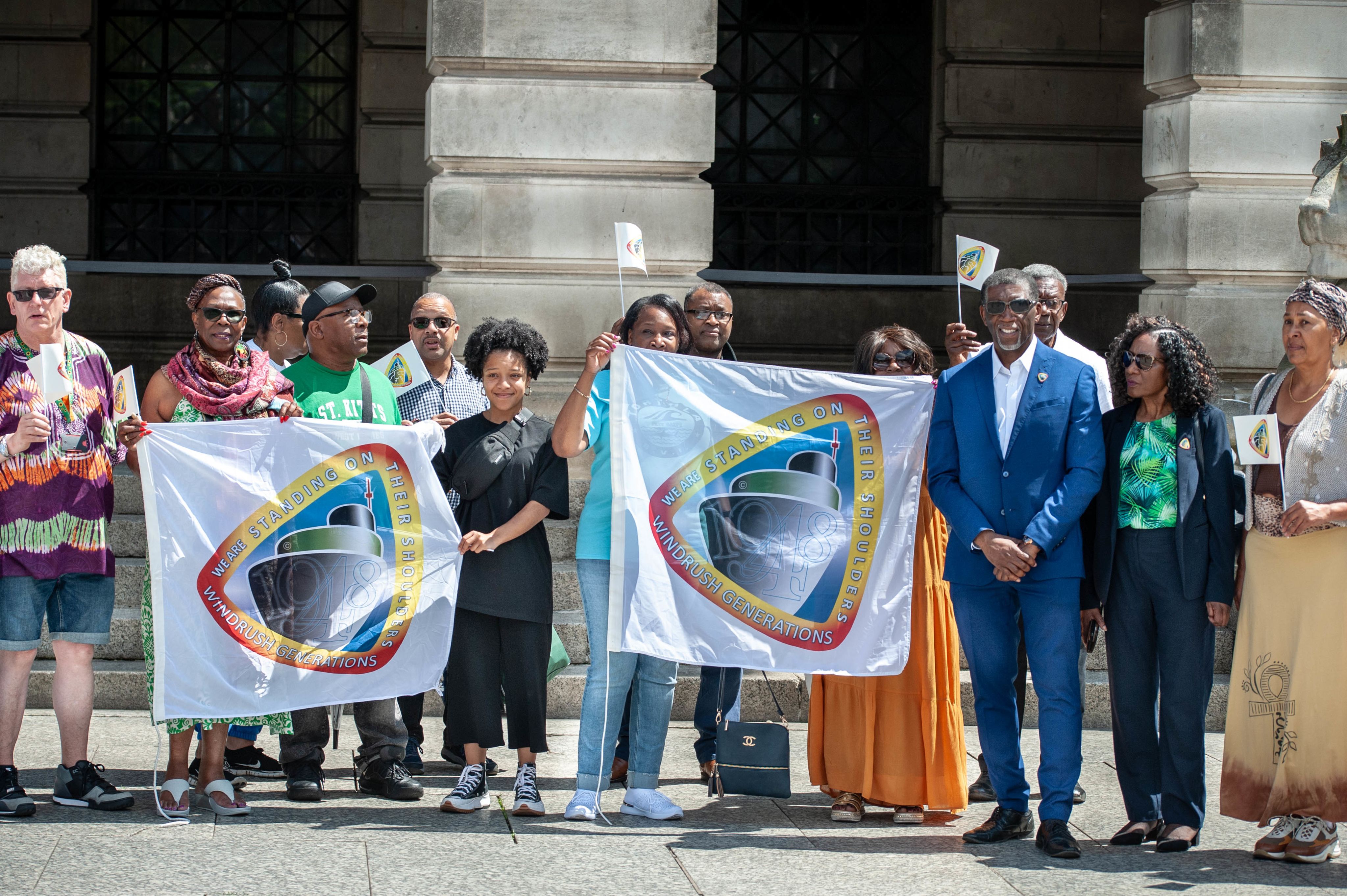
Part 1
Raising the flag
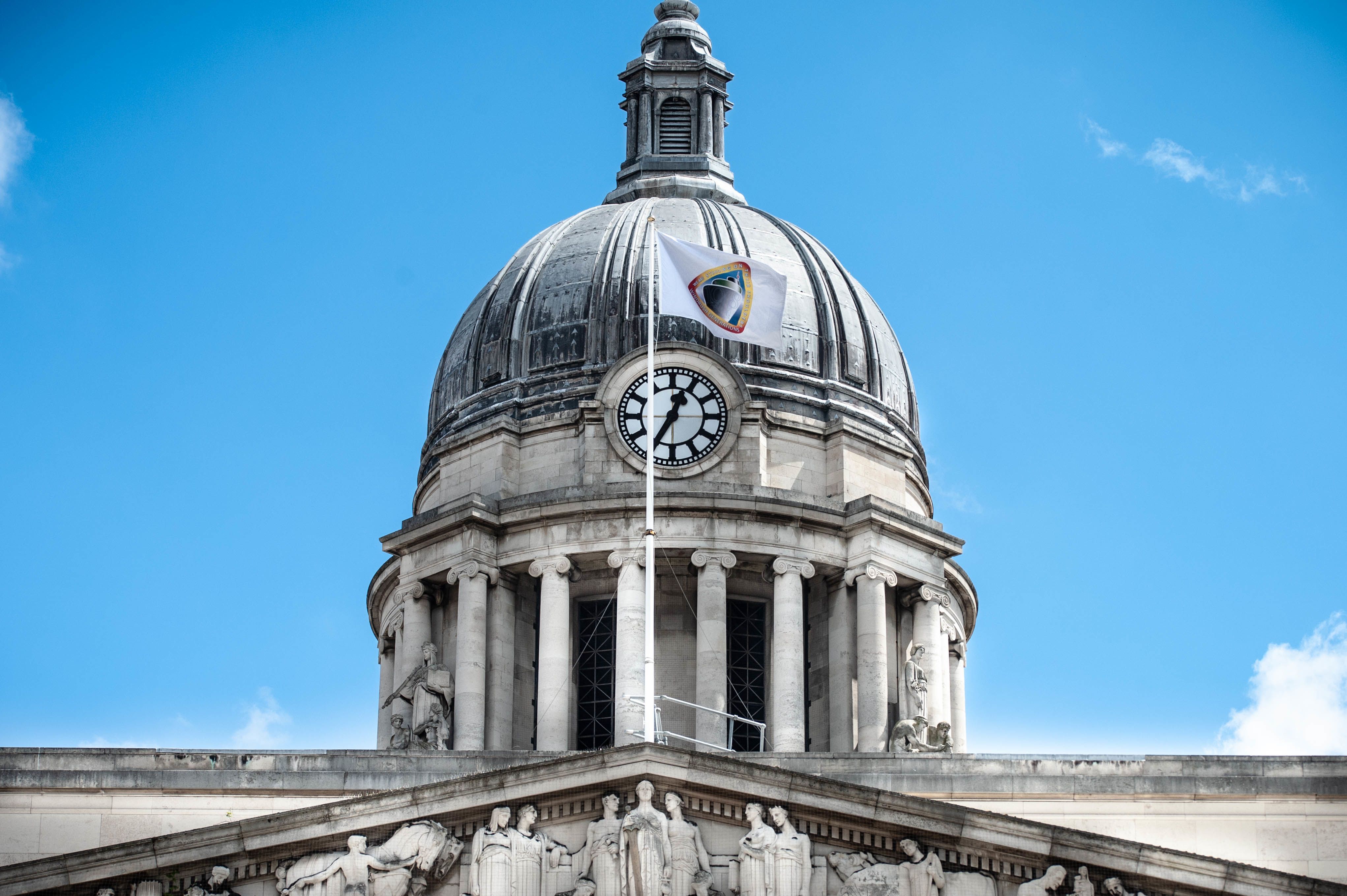
On the sunny morning of 22 June 2024, Nottingham residents and members of Nottingham Pilgrim Church met at the heart of the city in Old Market Square to commemorate the UK's sixth annual Windrush Day.
There was a reflective and upbeat atmosphere with participants waving their flags and banners as Reverend Clive Foster MBE, who planned the occasion, shared the importance of recognising the Windrush generation's contributions to UK society.
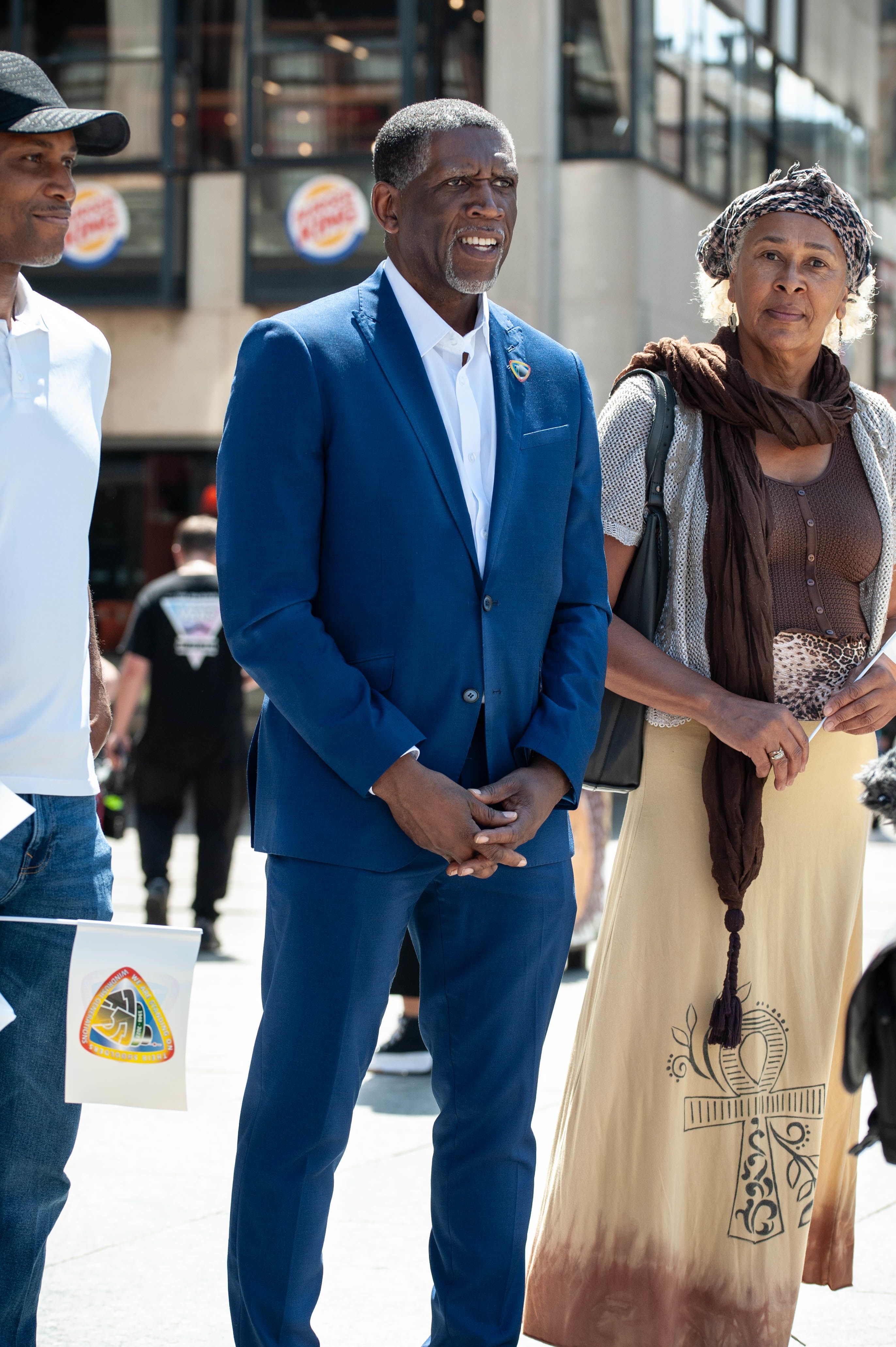
The flag, which is being raised in cities across the UK, depicts the HMT Empire Windrush, a ship which in 1948 brought 1027 passengers from Jamaica to London. To this day, the ship symbolises how, after its arrival, citizens of the Commonwealth became fundamental to the UK's economy, politics and culture.
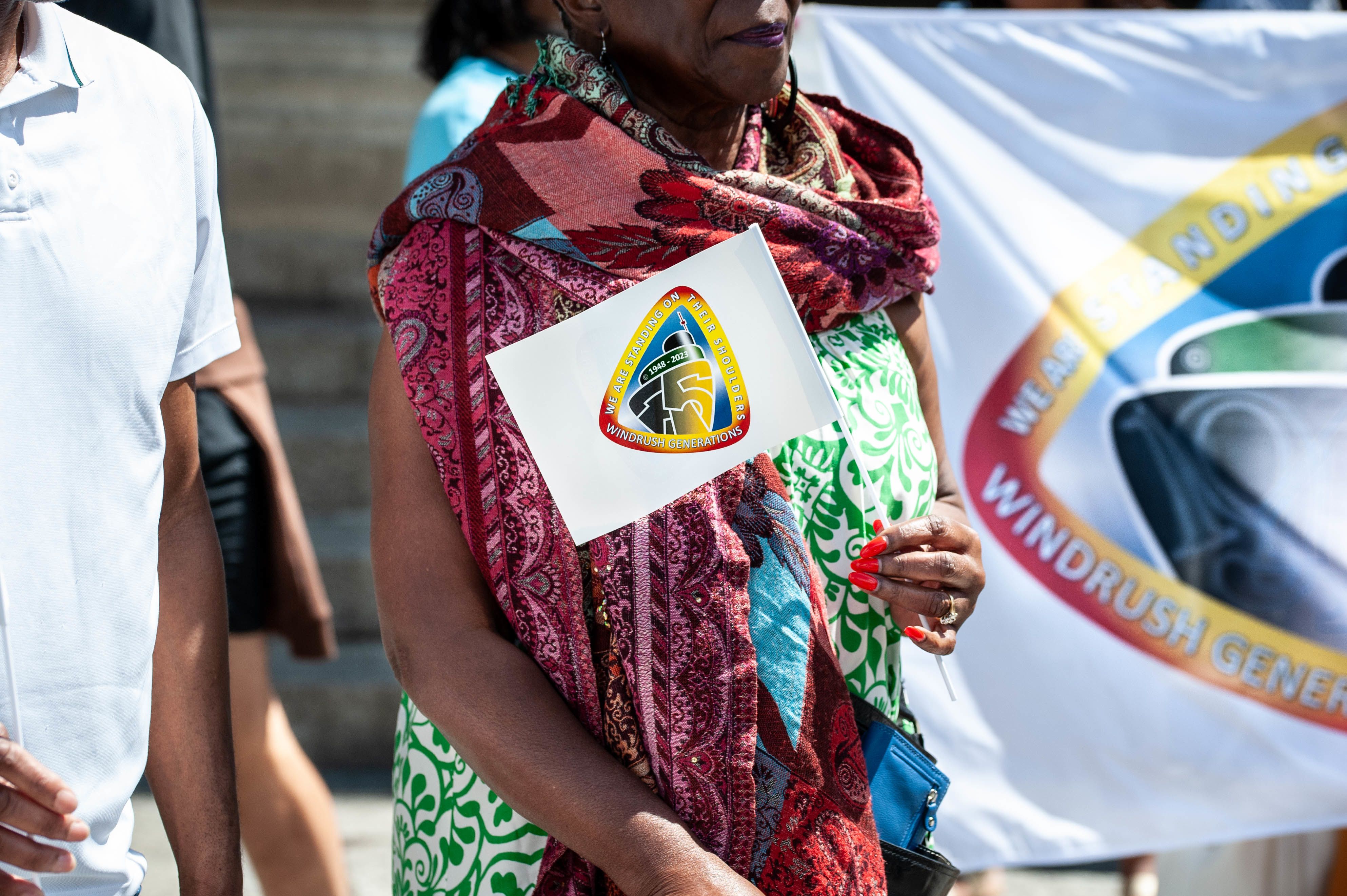
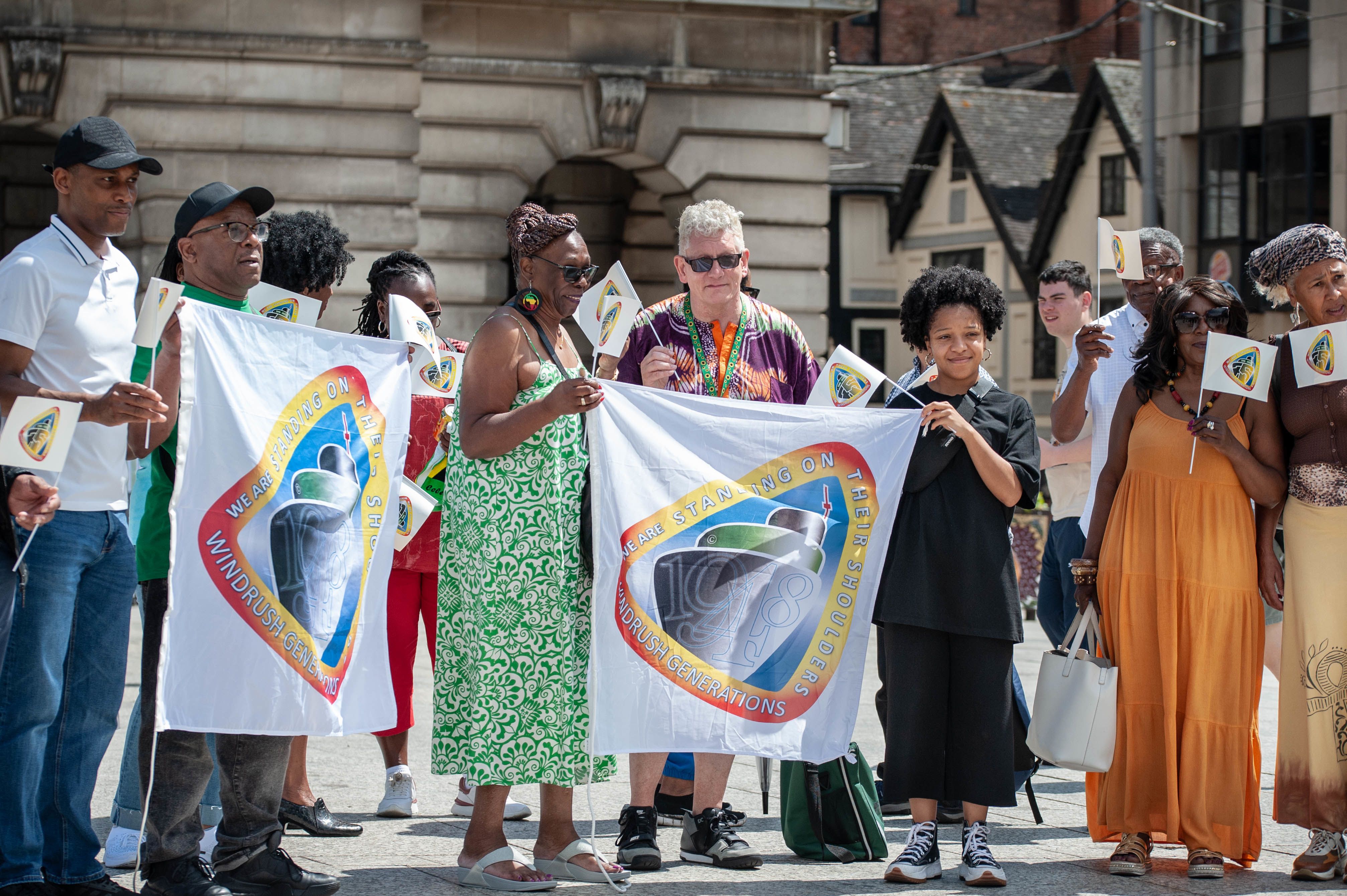
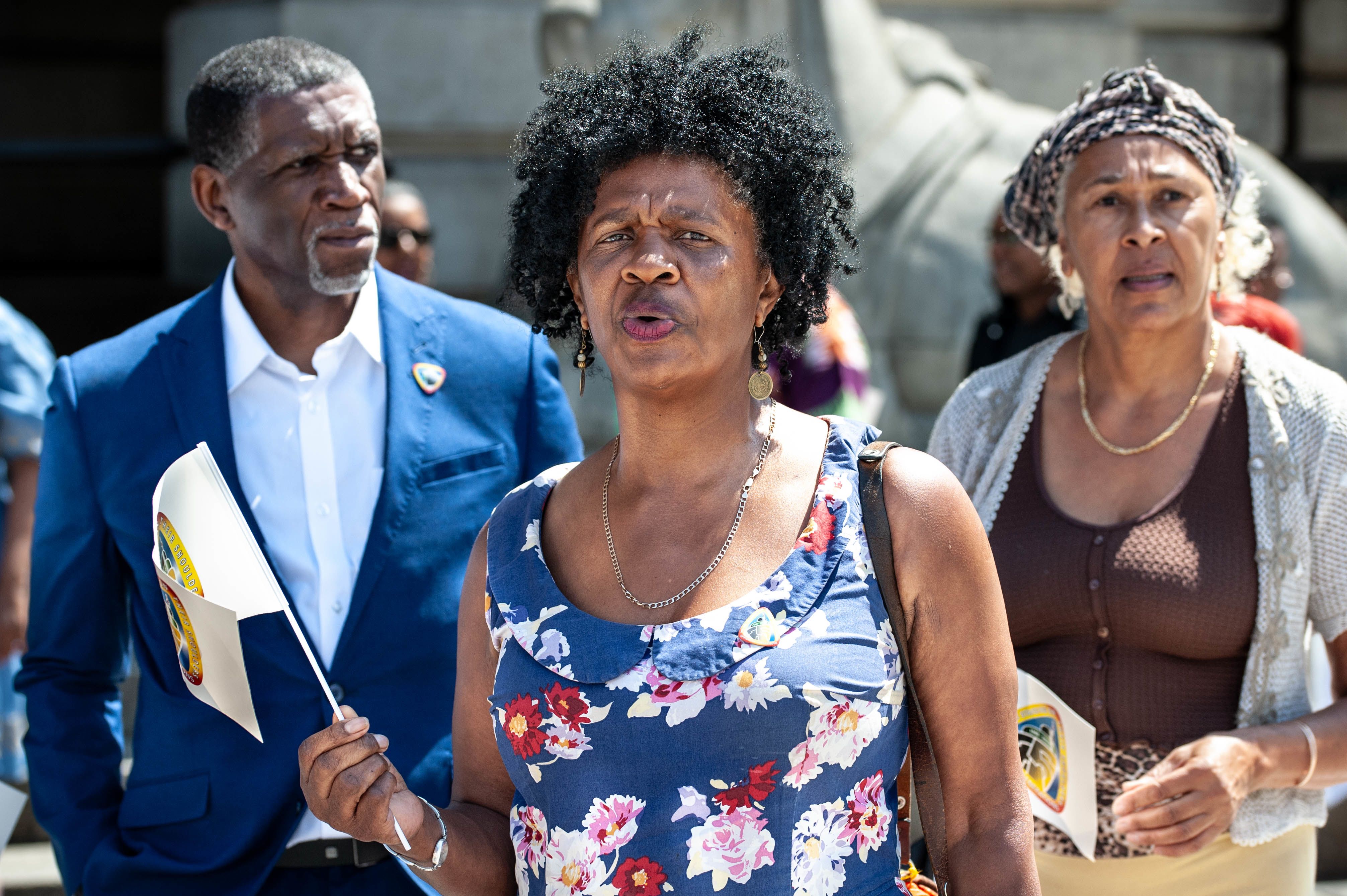
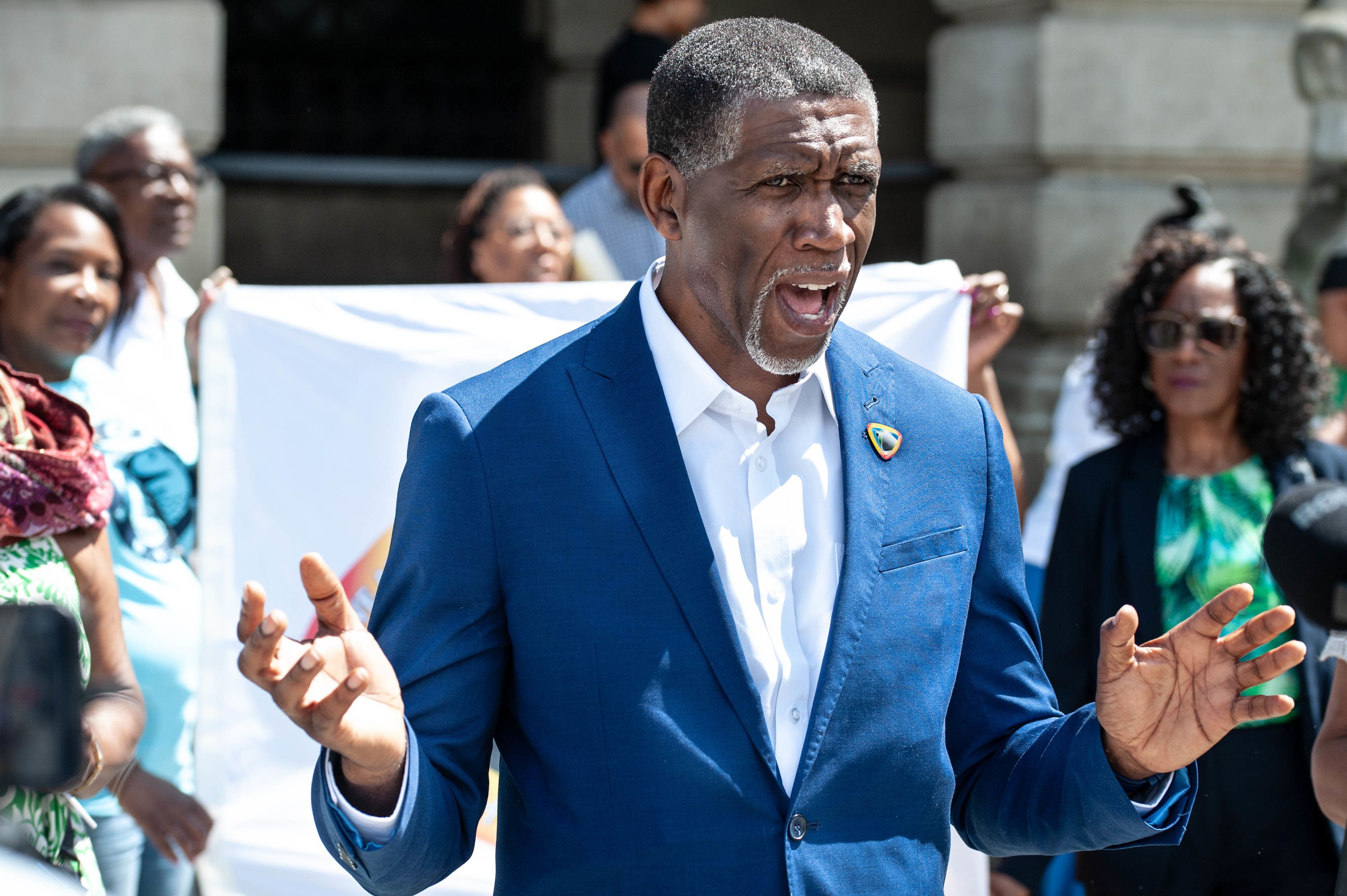
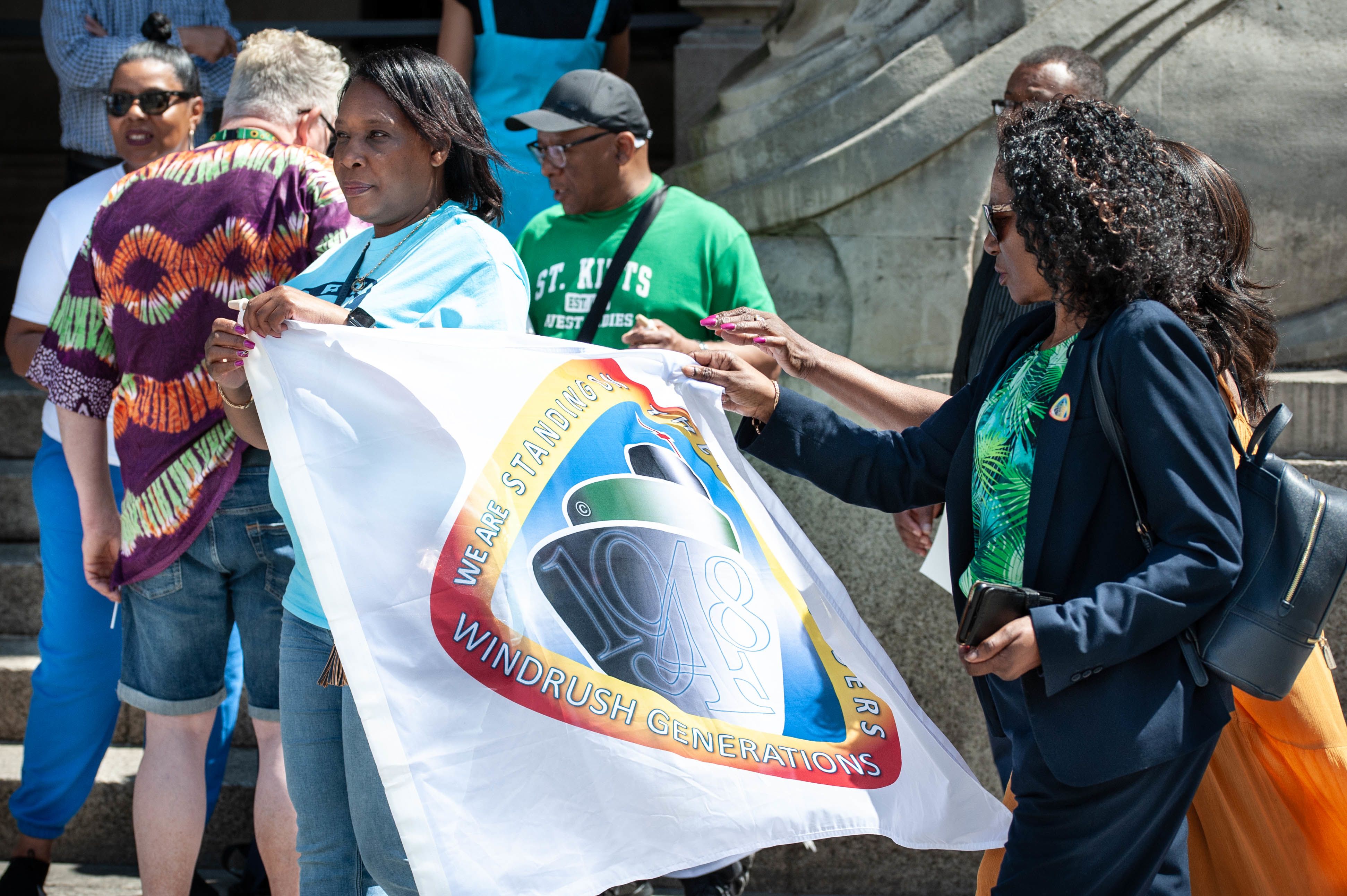
In 1948, needing a big workforce to rebuild UK infrastructure after World War 2, the UK government passed the British Nationality Act which granted the status of 'British subject' to all Commonwealth citizens. People from the colonies now had the right to live and work in the UK.
After the HMT Windrush arrived, other ships continued to dock in UK ports bringing people travelling from the Caribbean as well as central African and Asian countries.
These new arrivals filled a variety of jobs in UK society. People were often recruited to the NHS, newly founded in 1948, while others took on roles in transport, the postal service, factories, farming and textiles. The food, music, art and custom of Commonwealth countries soon became an integral part of UK culture.
Despite the fact that they'd been invited by the UK government, immigrants faced adversity through the decades which often manifested as racism. They were often refused accommodation by landlords, while the 1950s and 60s saw intense anti-immigrant prejudice across the country, violence and even riots.
In 1971, migration was quelled by the Immigration Act, which restricted immigrants' 'right-of-abode' unless they had a familial link to the UK. Regardless, Commonwealth countries had at that point enormously affected UK society and would continue to do so as the decades went on.
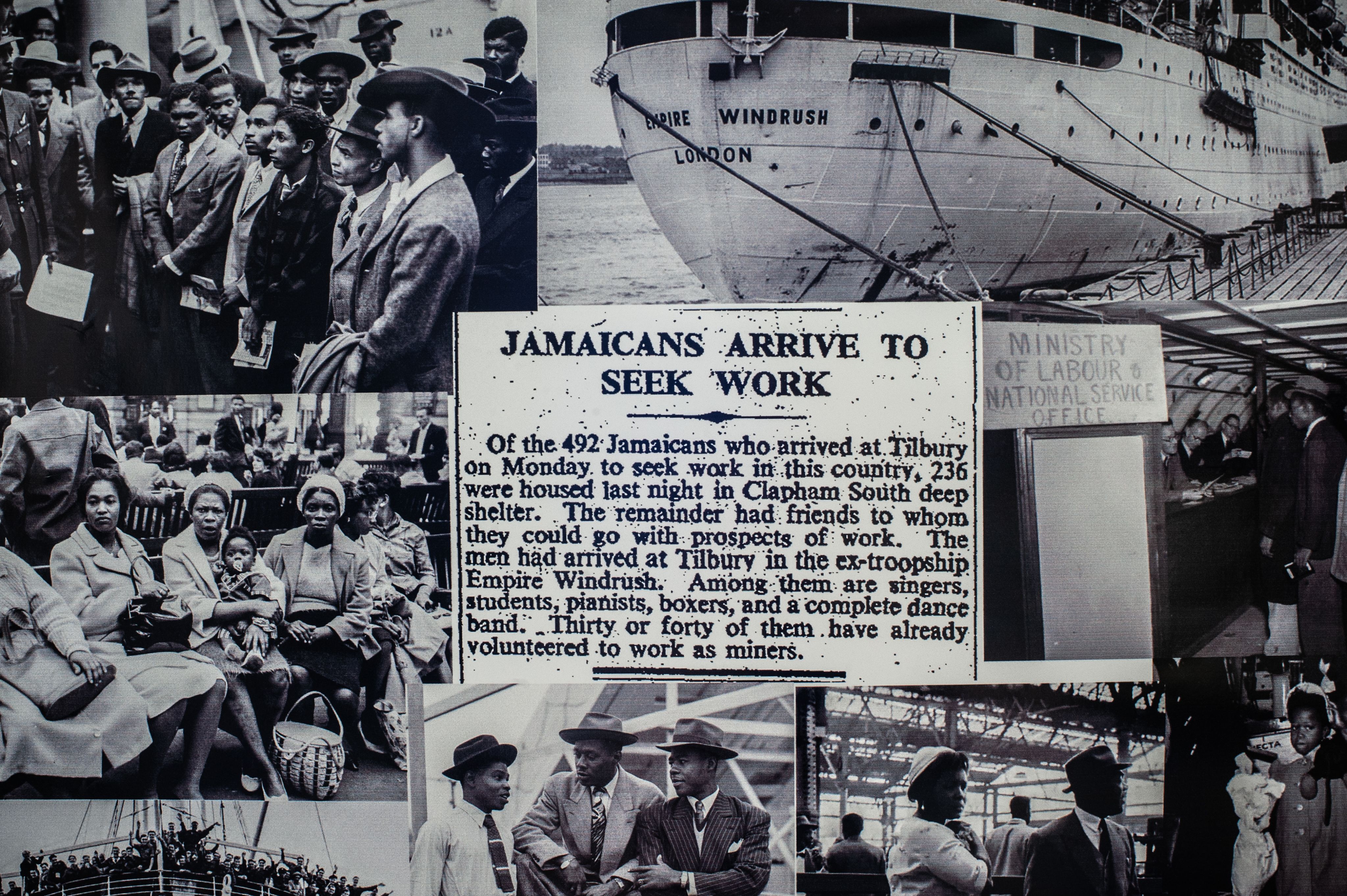
Attendees left Old Market Square to parade the flags around the city, visiting the Rum and Reggae Festival at Binks Yard and the memorial to Nottingham's Eric Irons: the UK's first black magistrate.
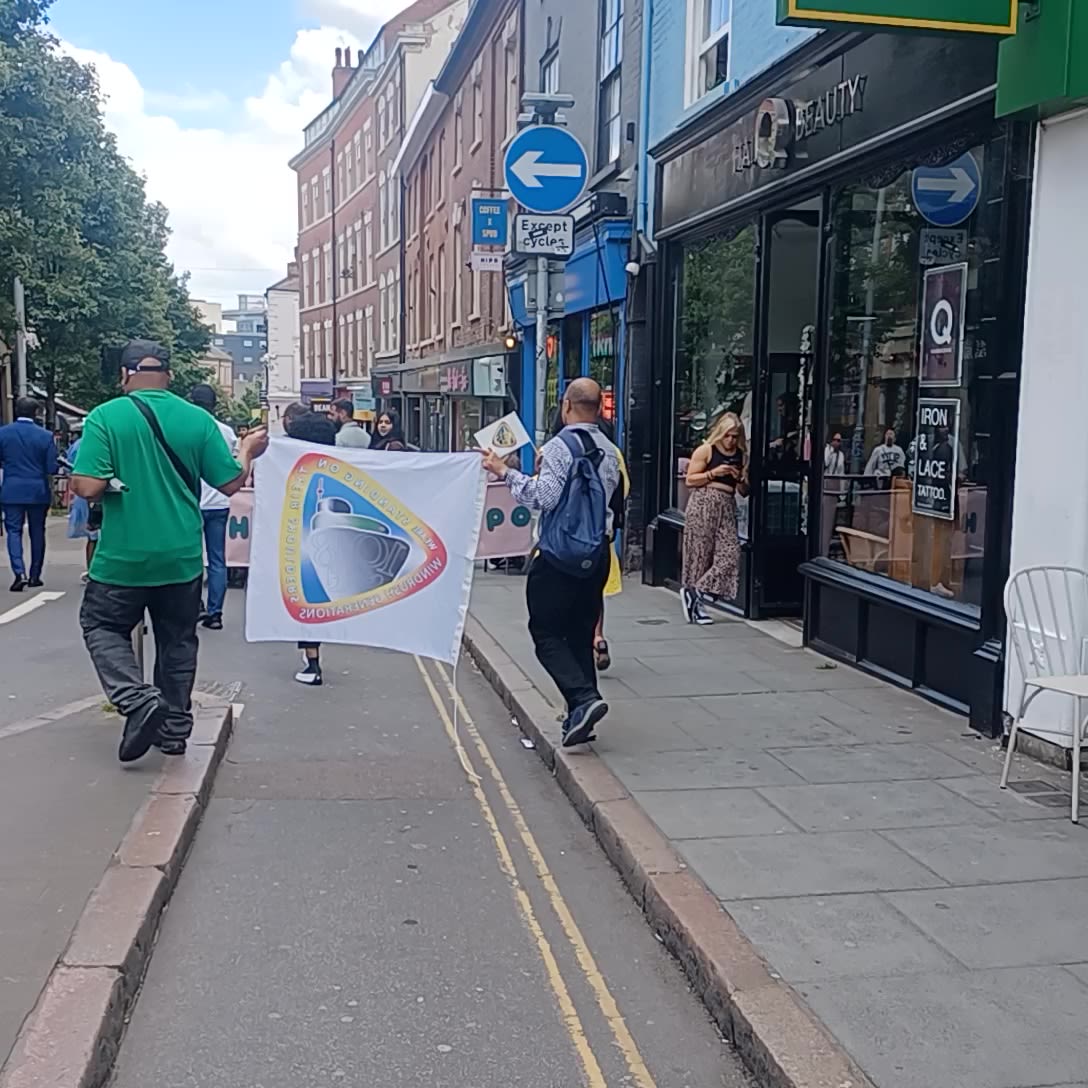
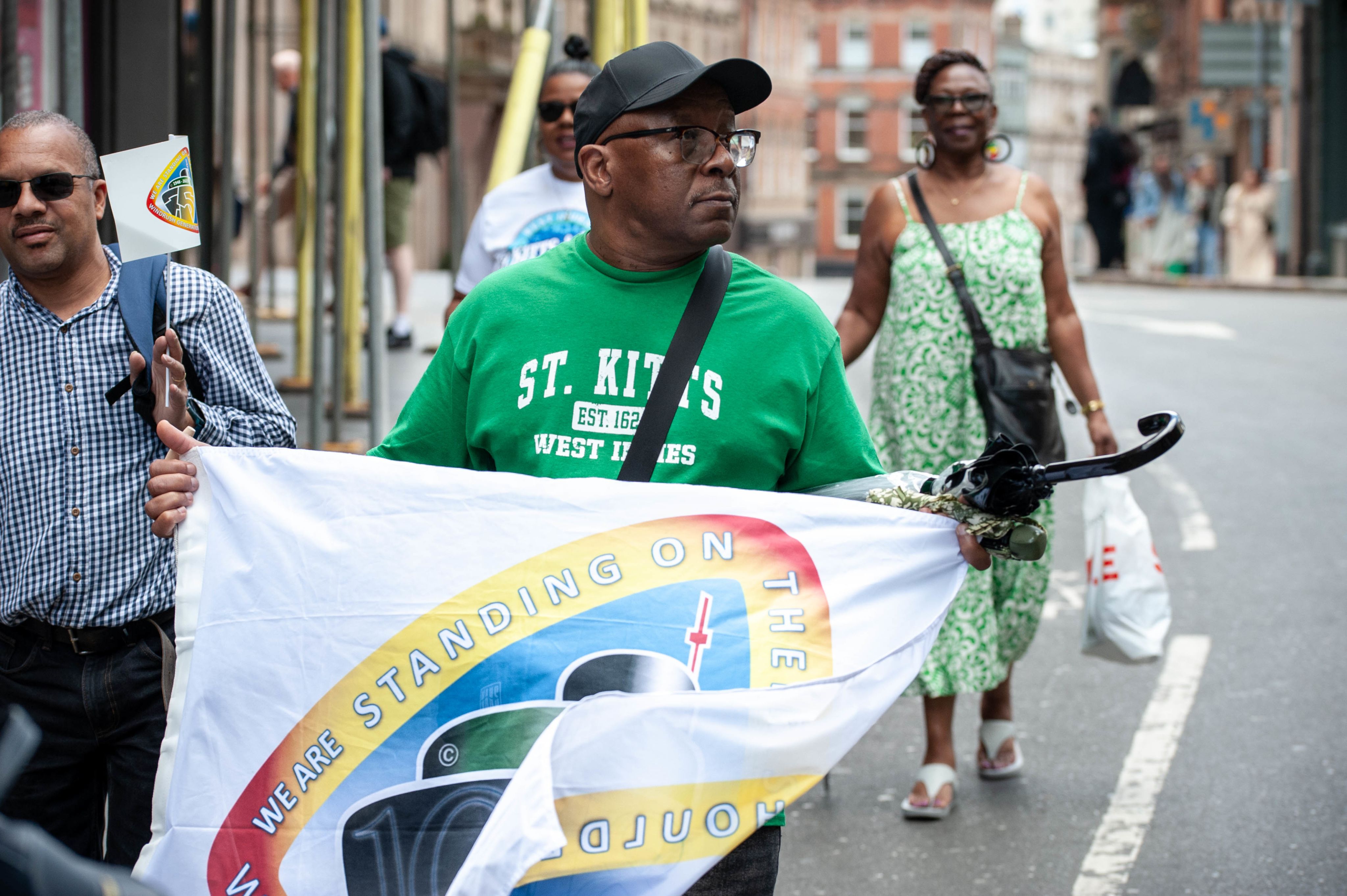
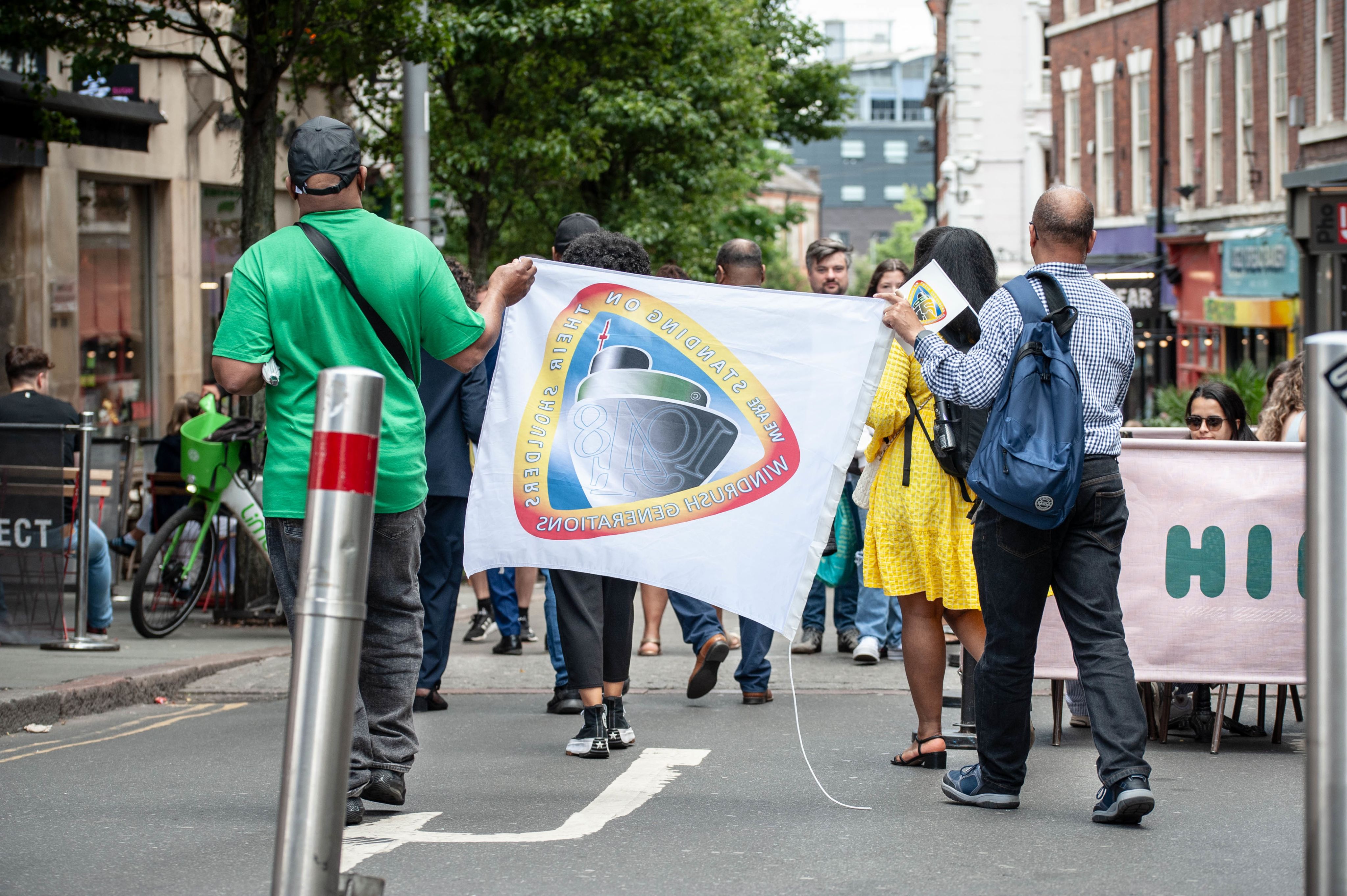
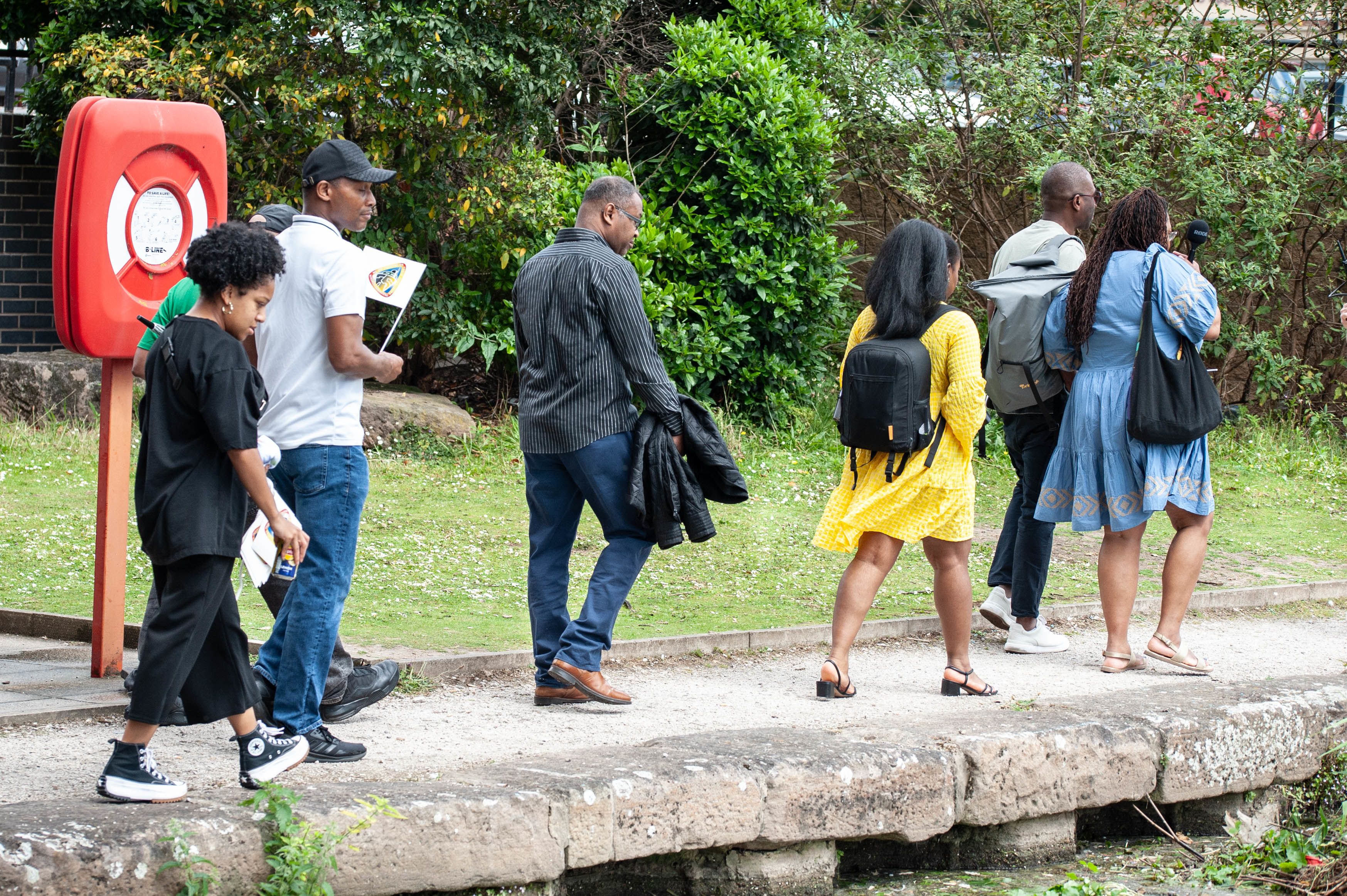
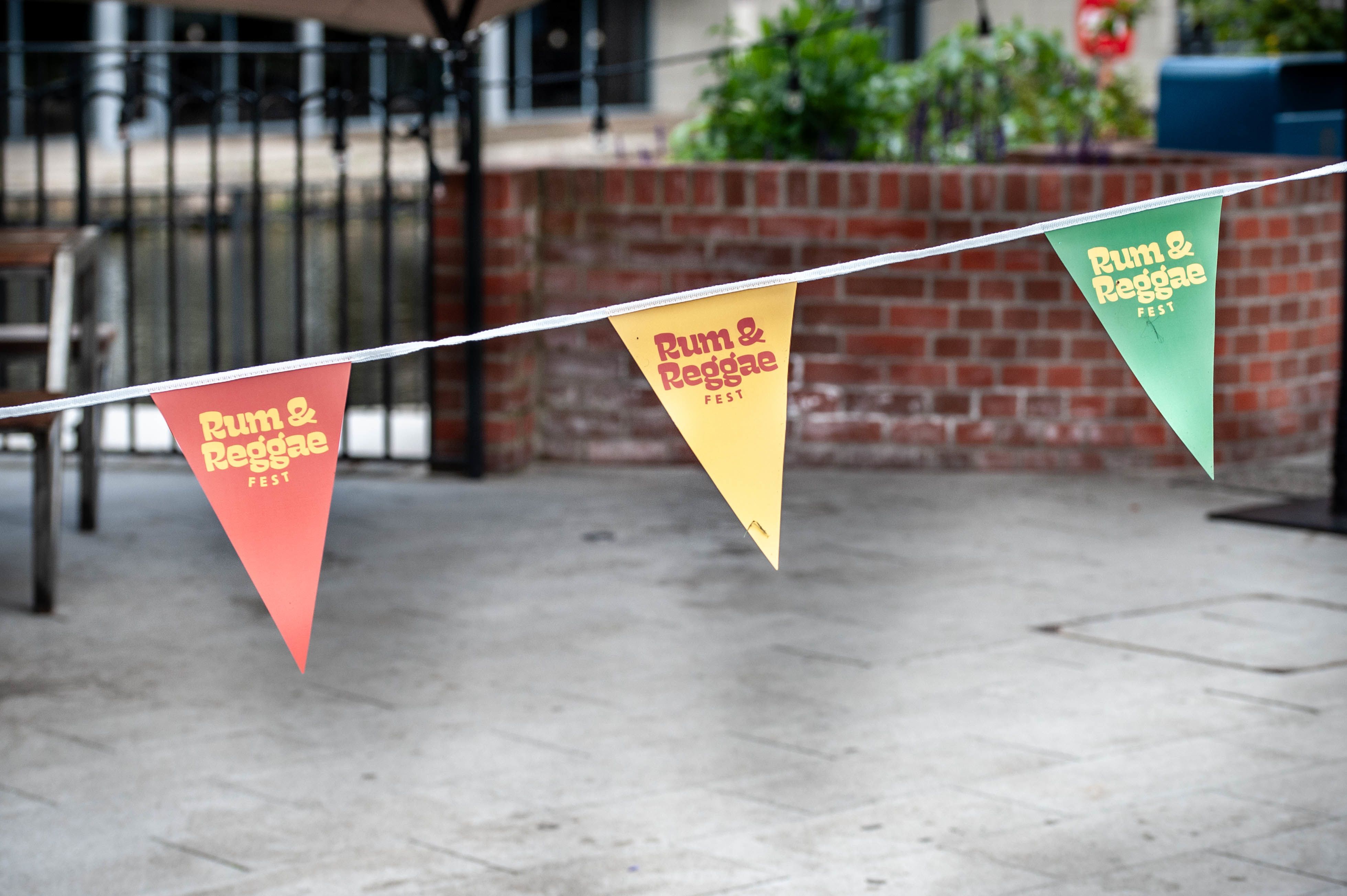
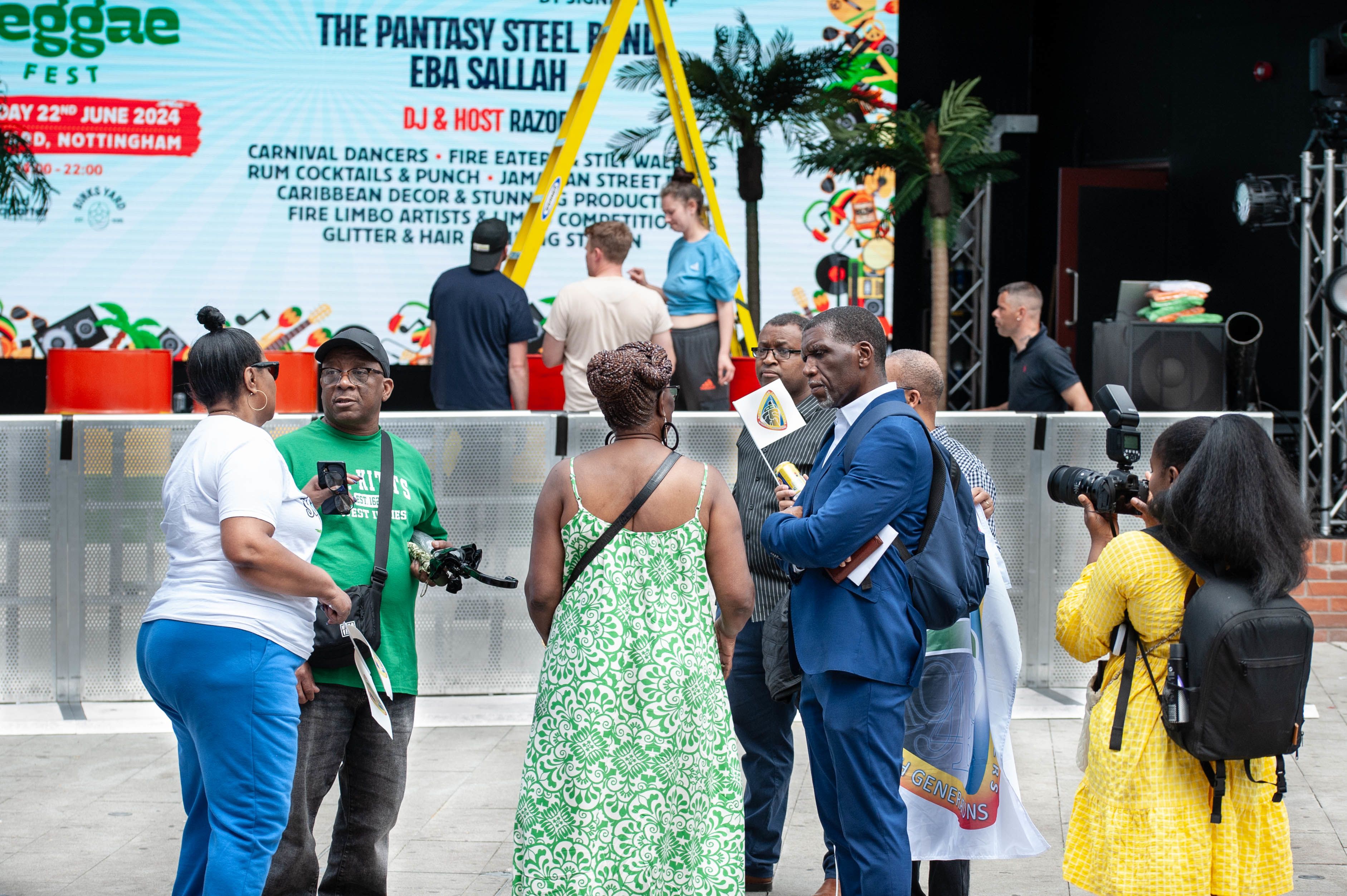
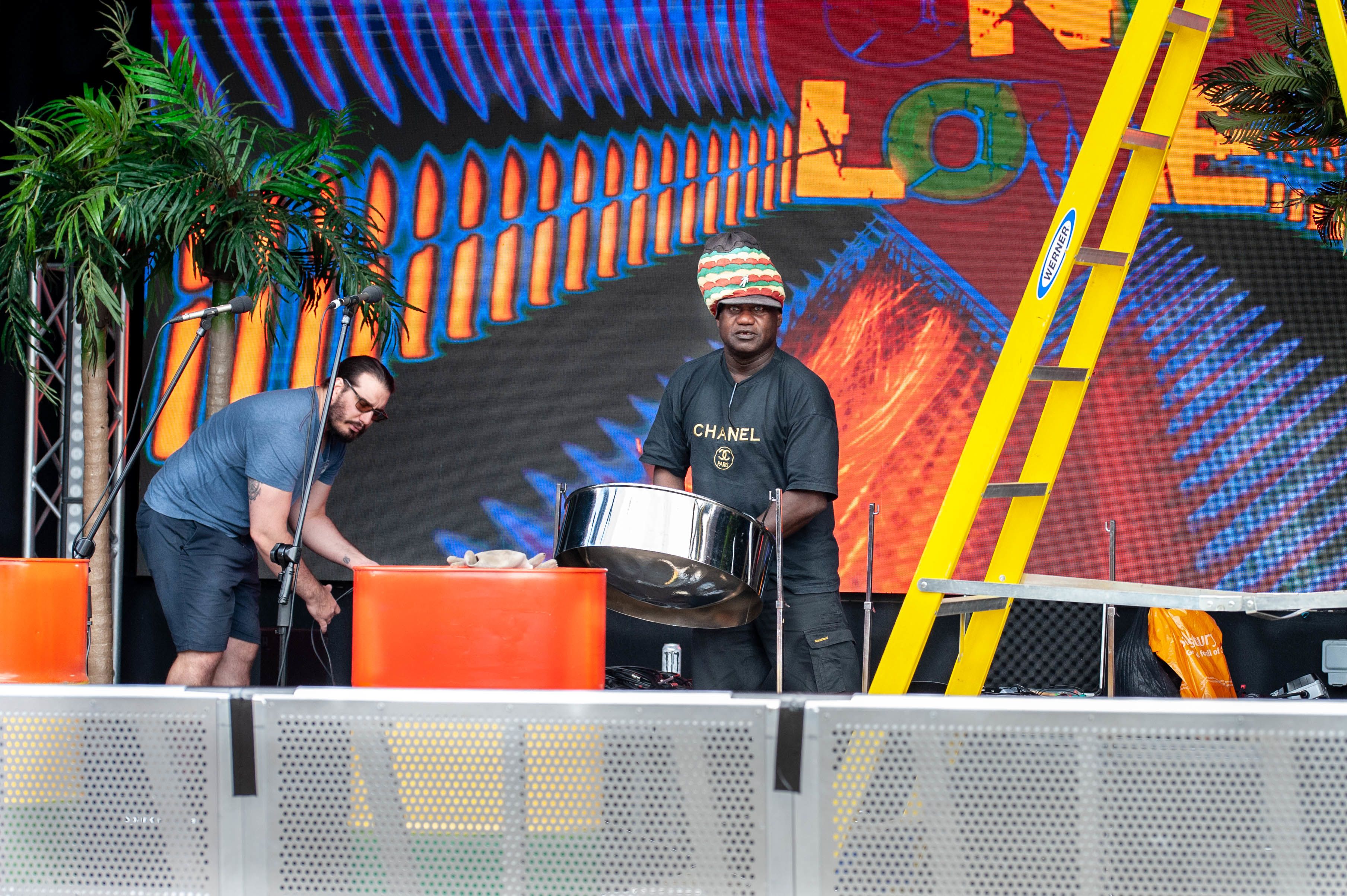
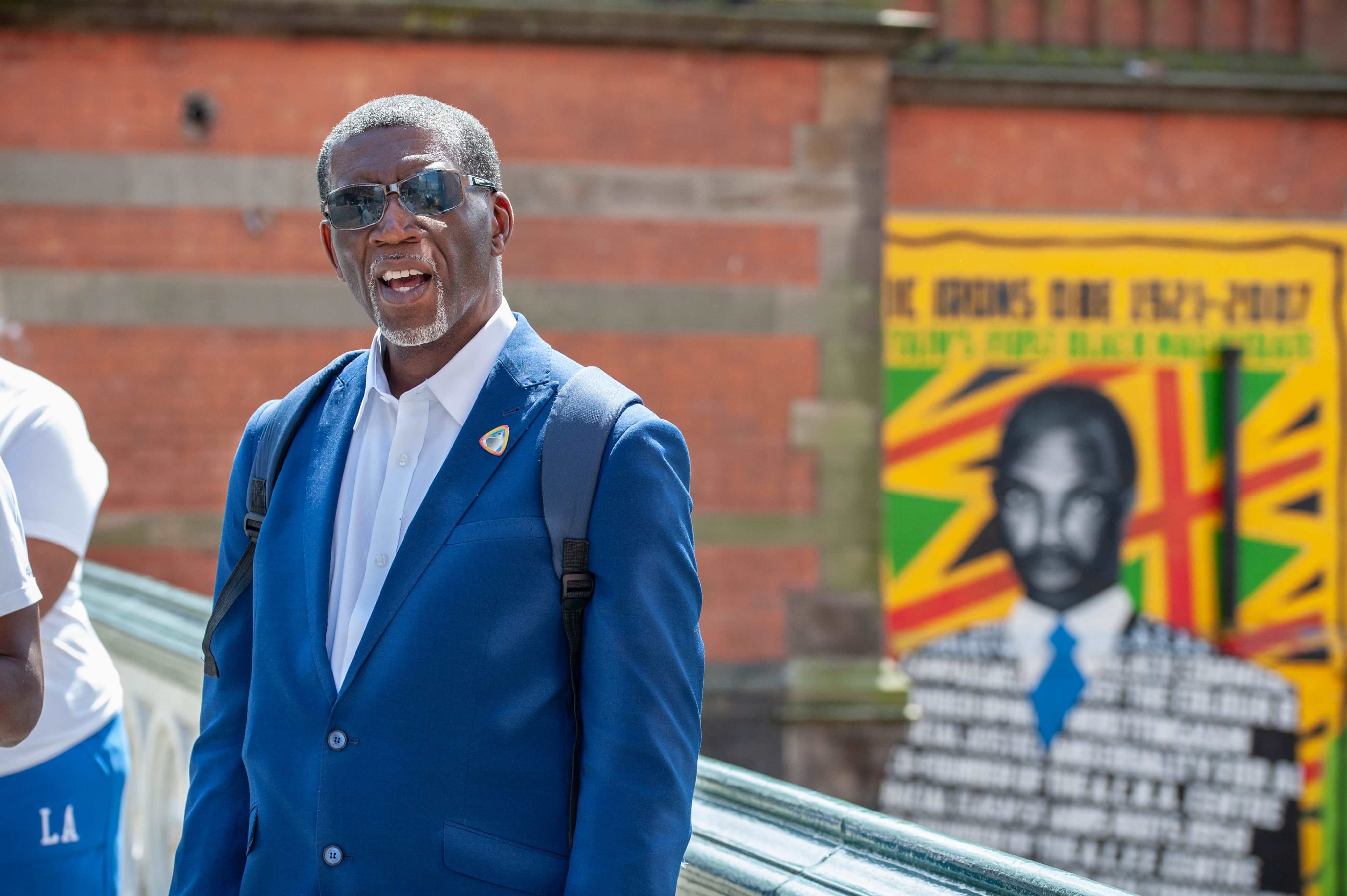
Attending the day's events, Reverend Mark Stewart, at Nottingham Pilgrim Church, said that as a whole Windrush Day celebrates the contributions that Black British and Caribbean people have made to UK society.
"So much of popular modern music, youth culture, language and terminology have been influenced by them," he said. "We need that section of society to identify with the greatness of this country with respect to how they helped to build it."
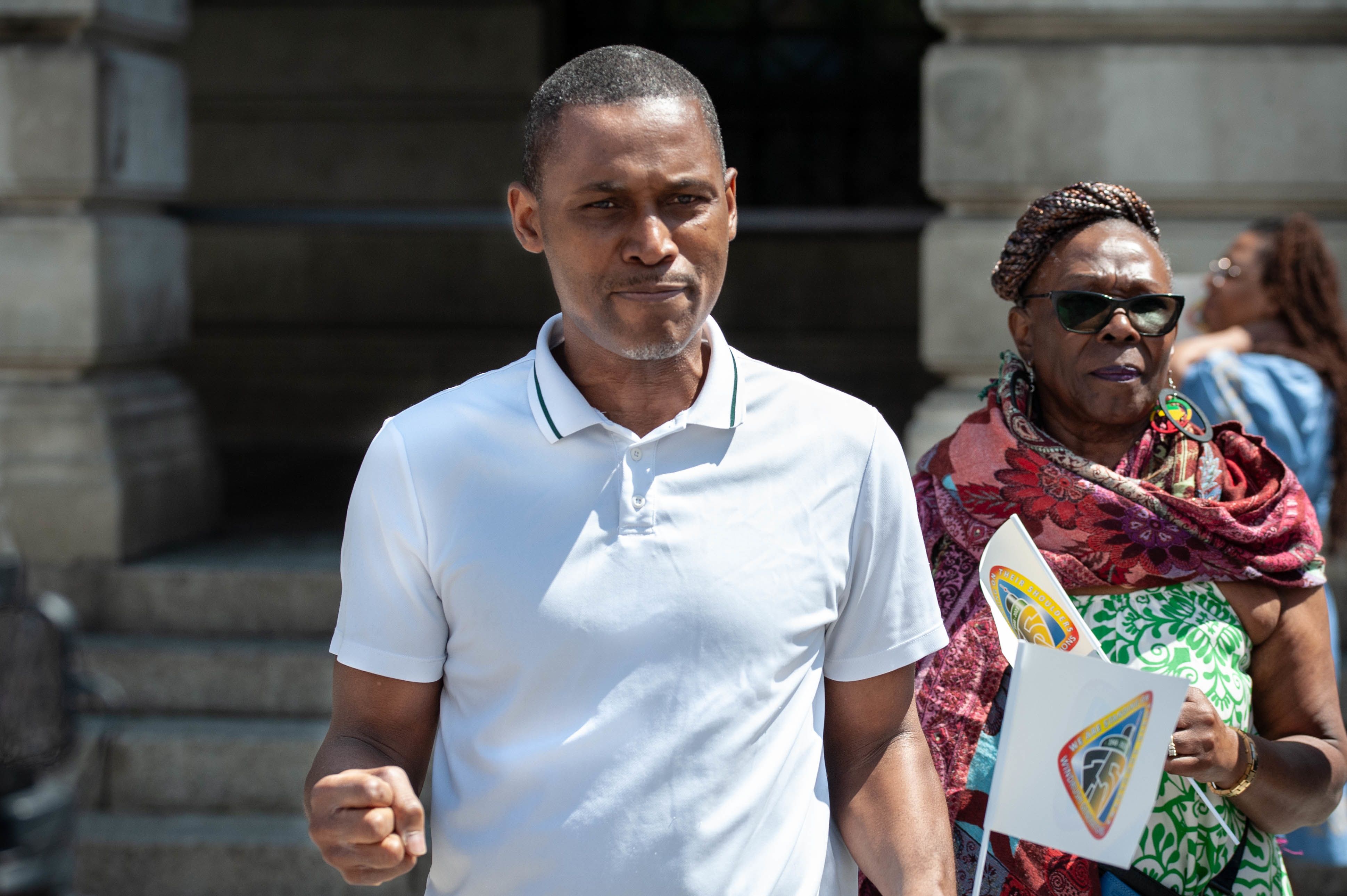
All the same, Windrush Day is still a commemoration of the hardship that people with immigrant heritage faced and continue to face in the UK.
In 2018, it emerged that the Home Office had not kept records of immigrants granted permission to stay in the UK from 1948 to 1973.
This led to the Windrush Scandal which saw many people prevented from accessing healthcare, work and housing, unable to prove that they were in the country legally. At least 83 people who arrived in the UK before 1973 were wrongly deported.
Mark thinks that the victims of the Windrush Scandal should be optimistic about getting the compensation that the government has promised them.
"The compensation was introduced to help transform justice in the UK," he says, adding "the same problem that led to the scandal, an unachievable burden of evidence, wasn't to be applied to compensation. It's the government's responsibility to ensure that people applying aren't dealt a double injustice. So I think people affected have every reason to apply."
Part 2
Looking back in time
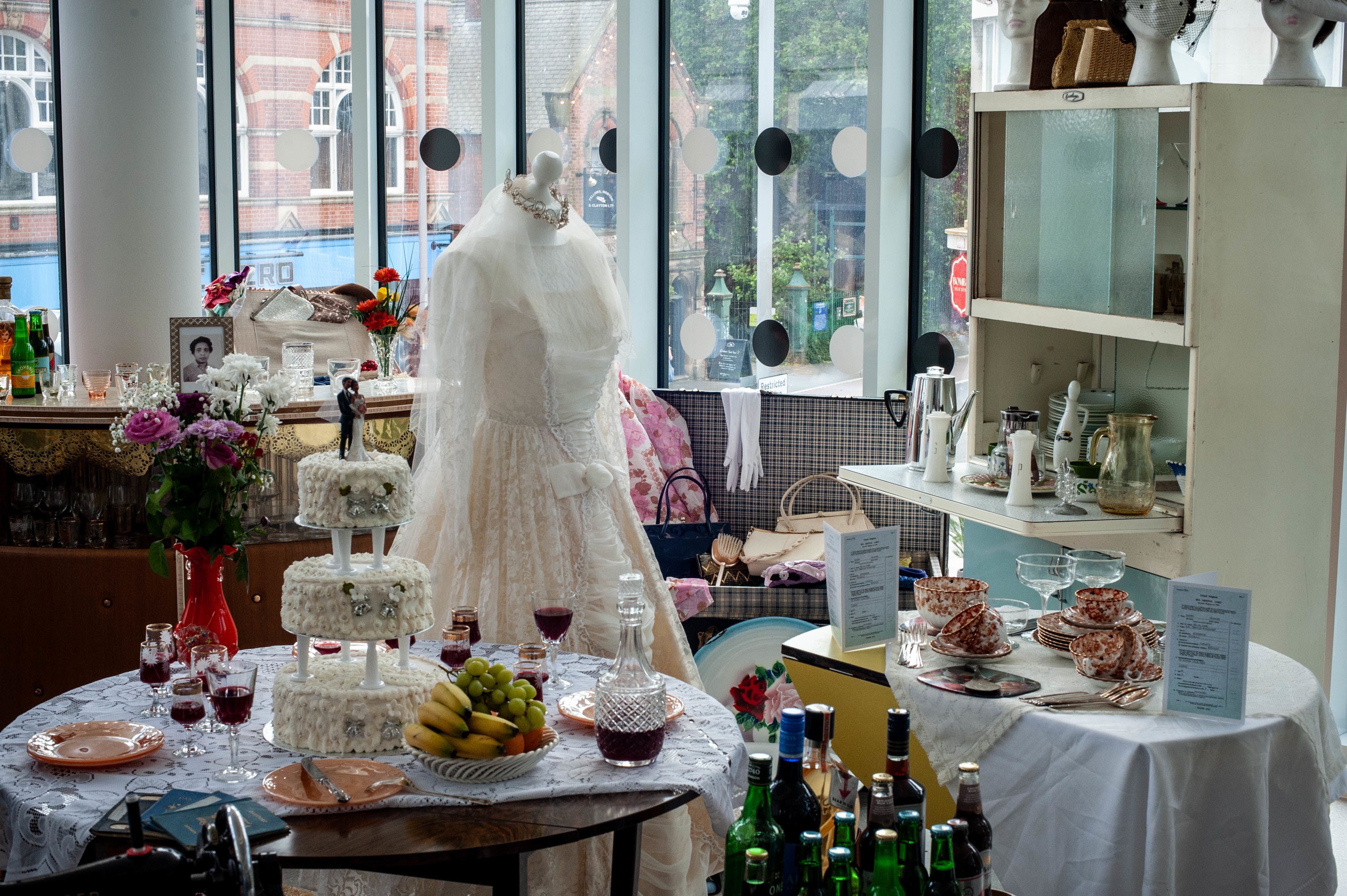
Nottingham Central Library was the next stop of the day to visit the 'Windrush Front Room' exhibition which replicates the typical living room of a Caribbean emigrant family in the 1970s.
It was set up so that descendants of the Windrush generation could remember the items that their parents or grandparents had and reminisce on the importance that these living rooms held for Caribbean and Black British people in the 70s.
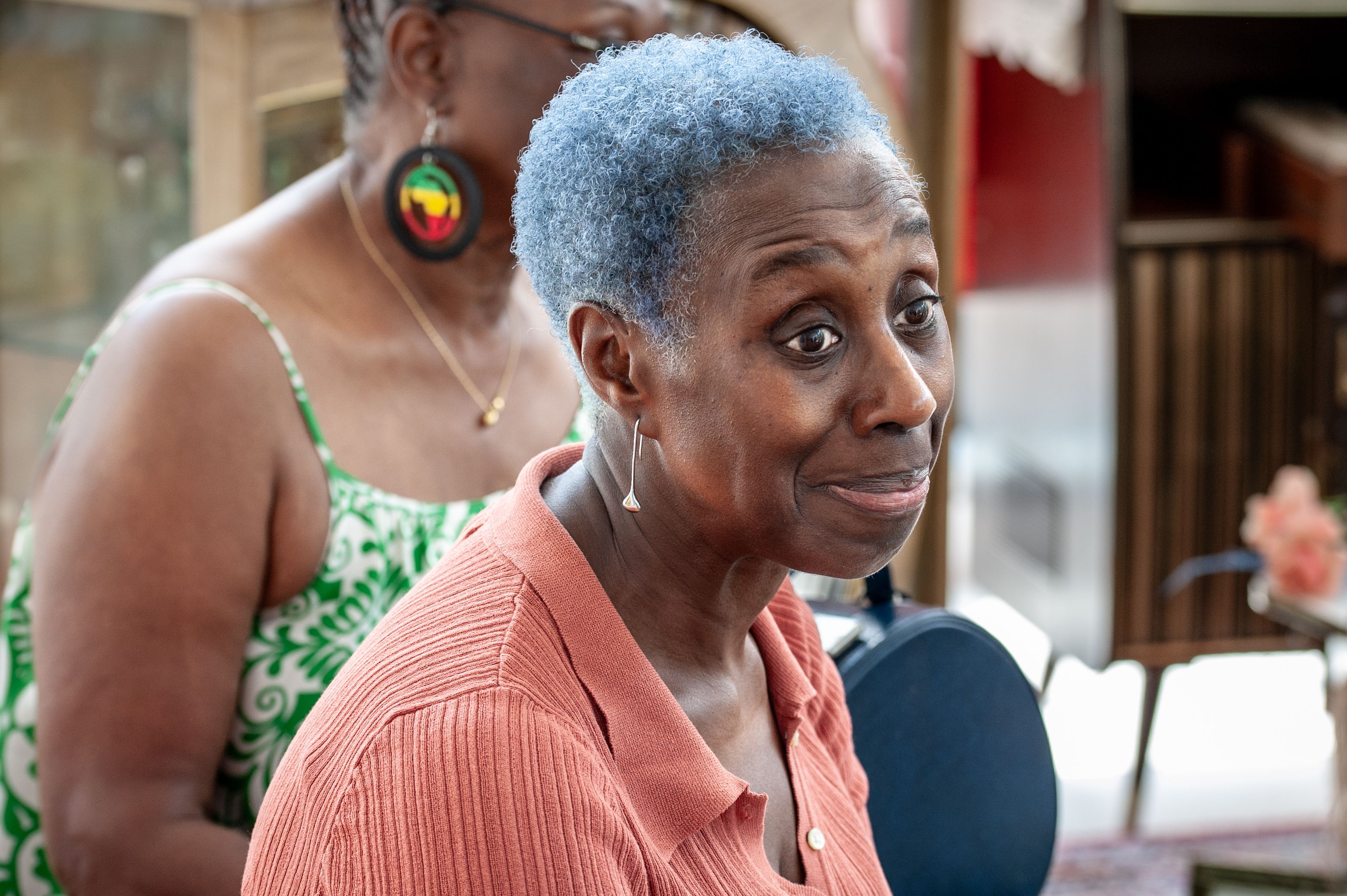
Exhibition curator, Shirley Levy, said, "It's fantastic to hear people sharing their memories and we're very happy with the items we've found and managed to save."
She added that she created the living room replica all from memory of her own childhood living room.

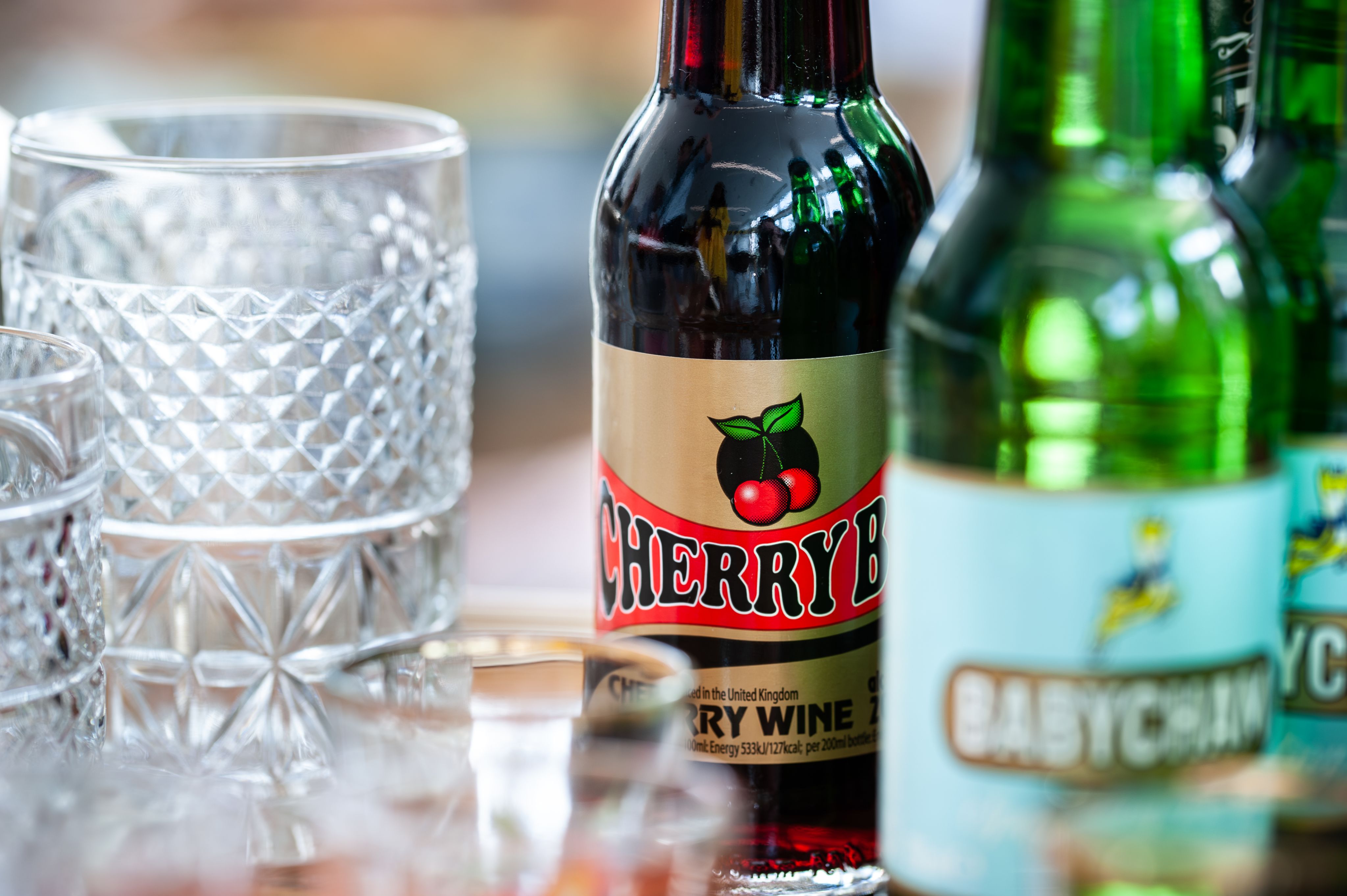

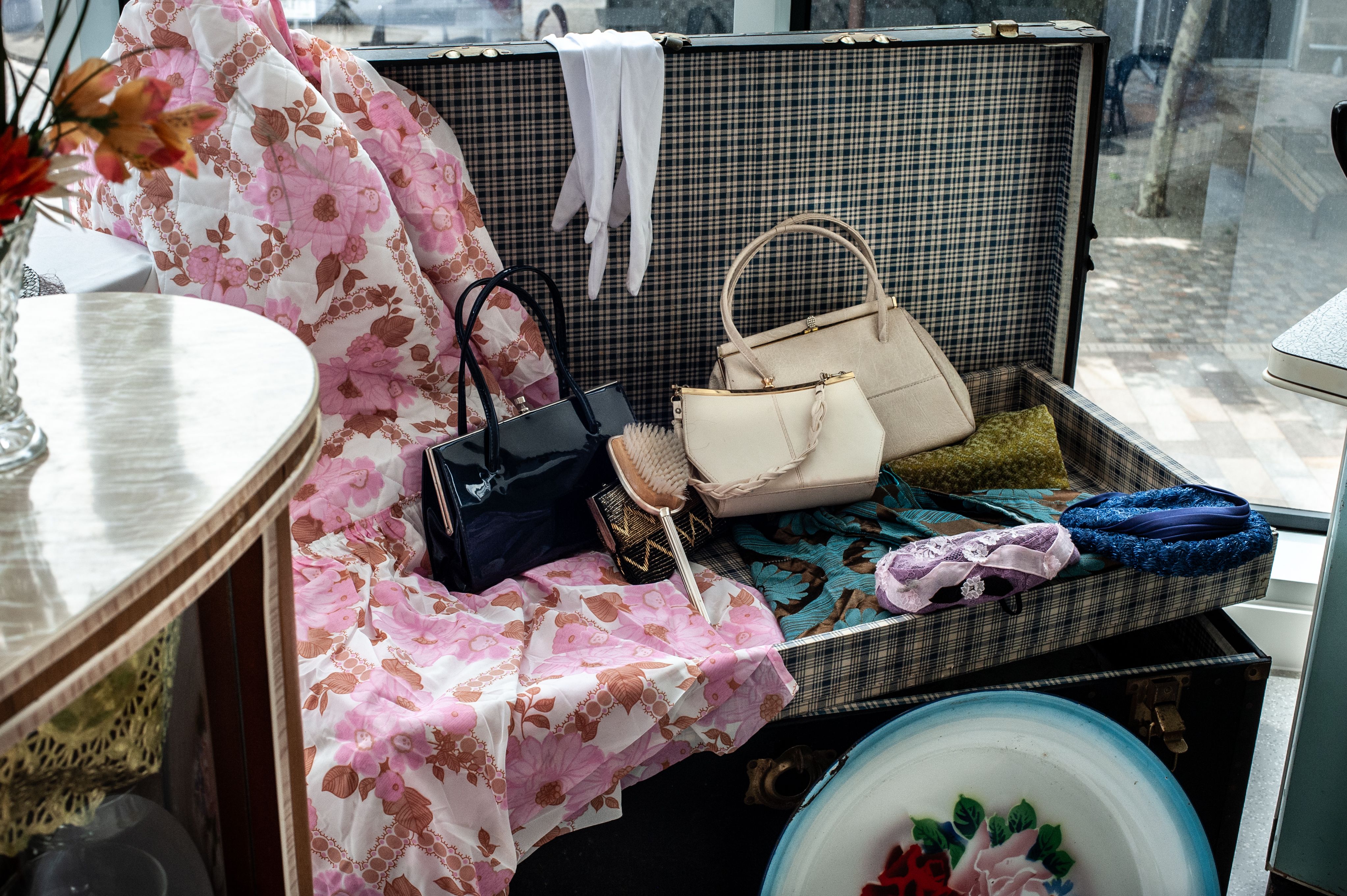
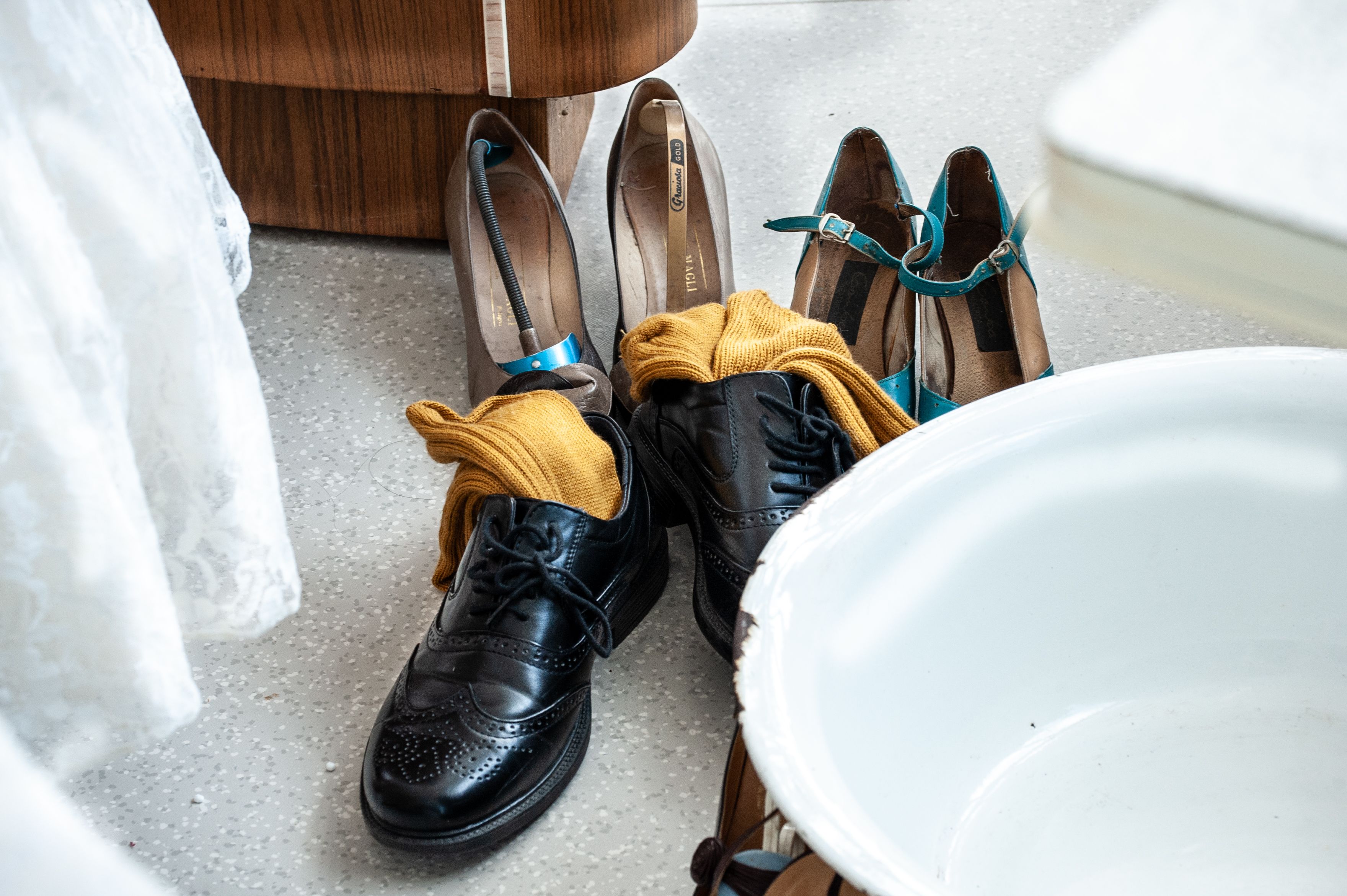
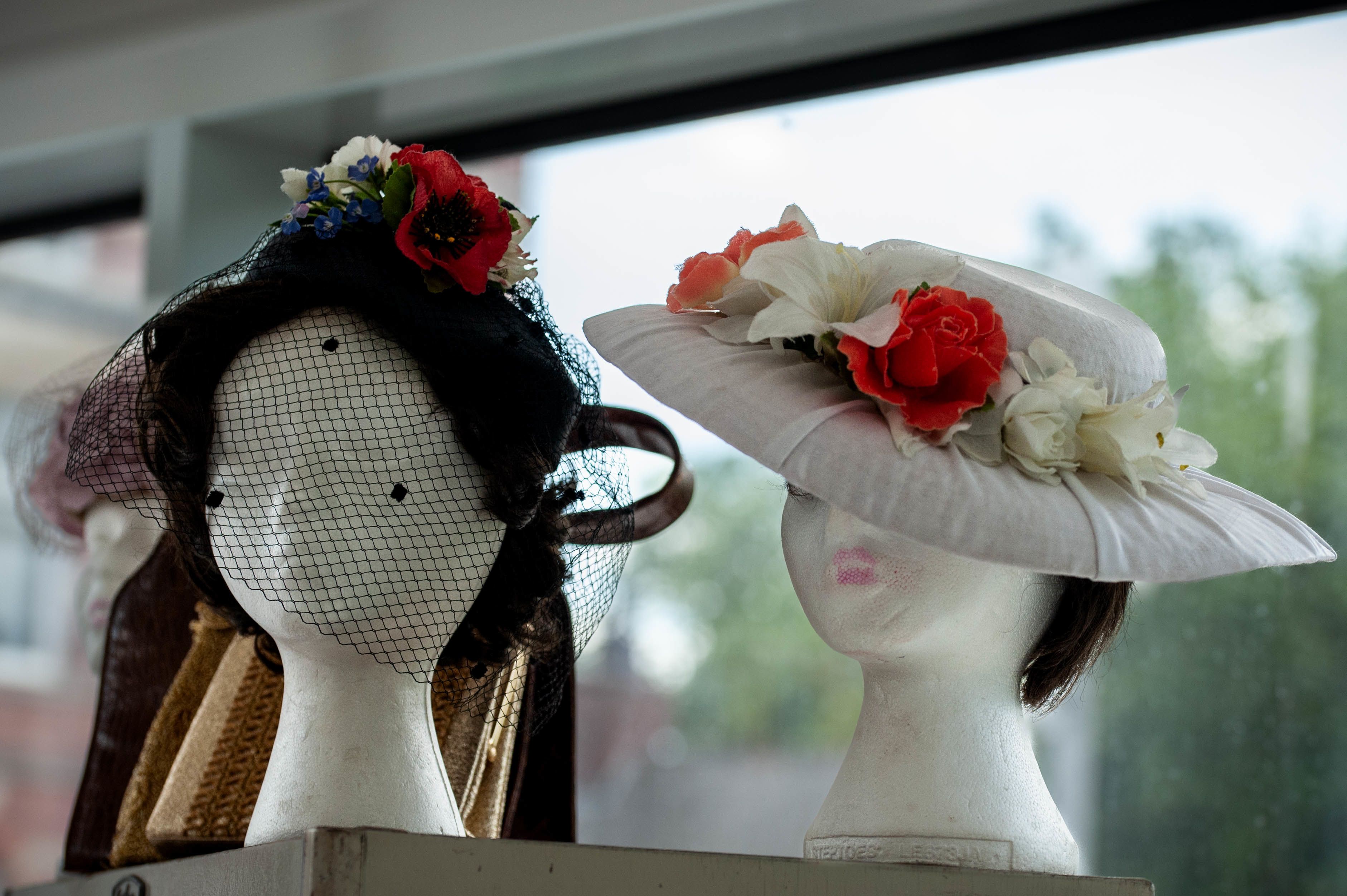
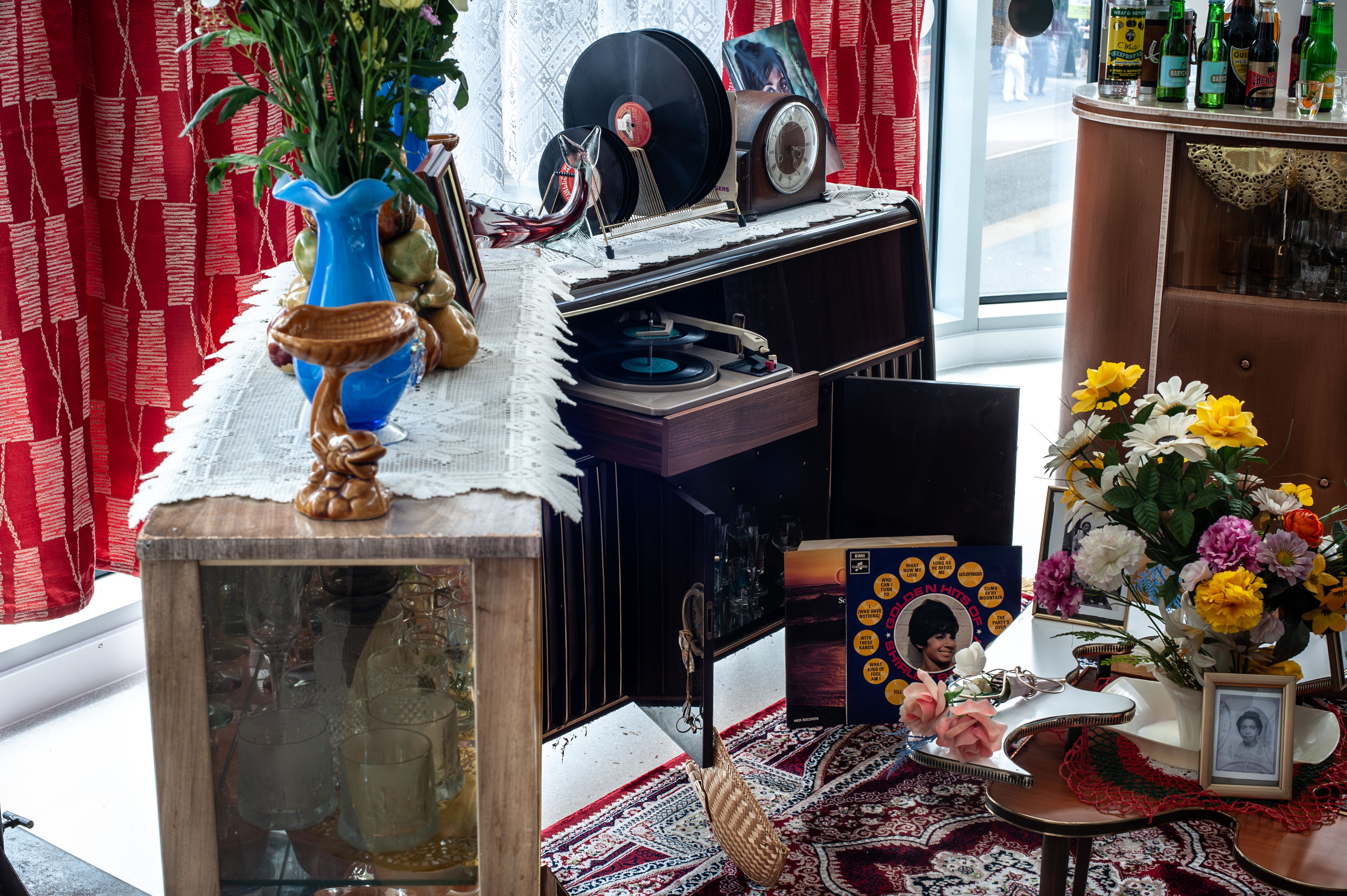

Paraffin lamp - Merlita Bryan held on to this keepsake that was originally her parents' and donated it to the exhibition.
Weddings and other parties called Shubeens or Blues were commonly held in living rooms. Yah Wacera, 36, said they were a safe space for Caribbean people in the UK.
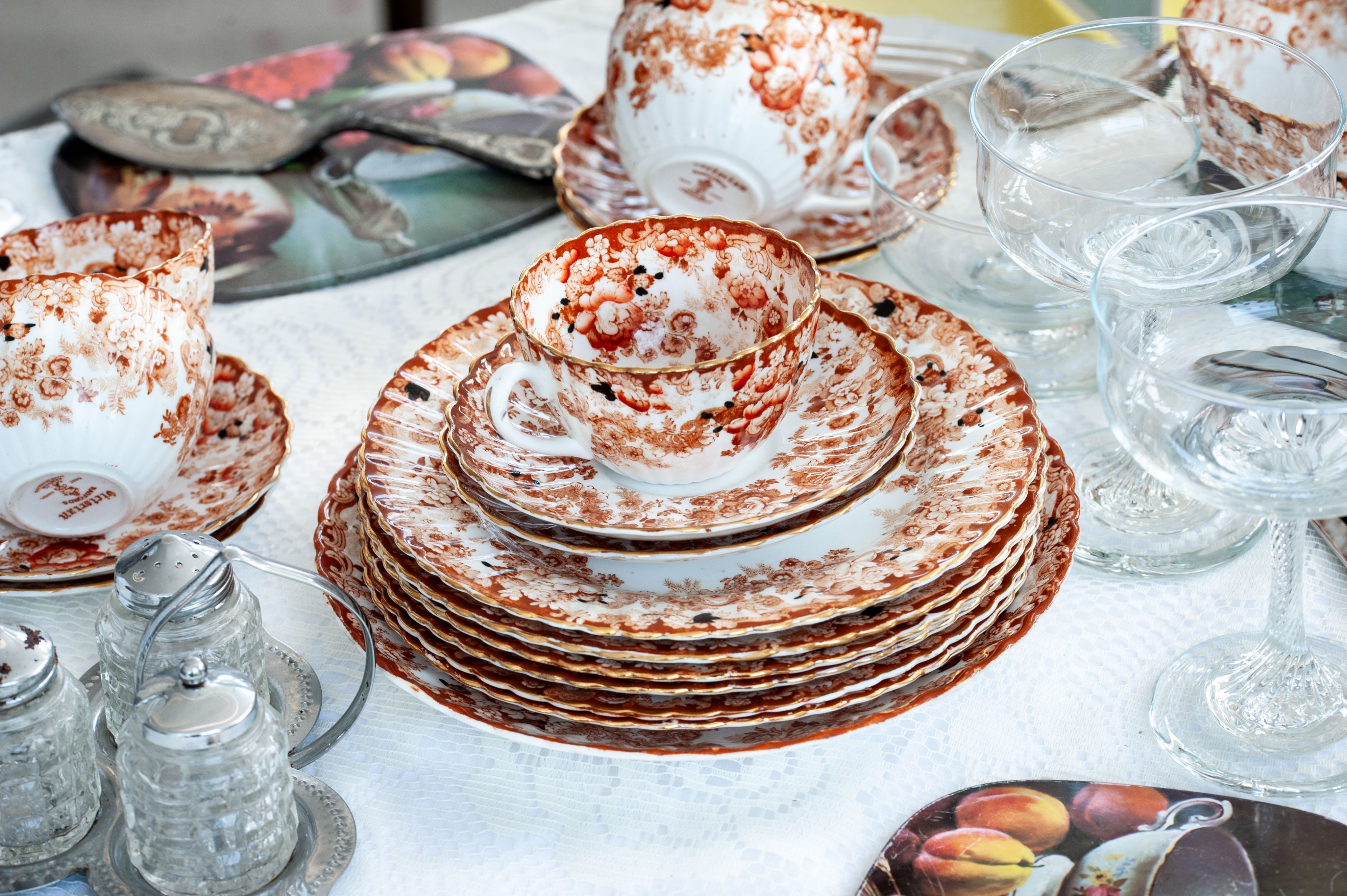
A lot of the items in the exhibition were donated, borrowed or bought from Facebook Marketplace. Exhibition curator, Shirley Levy wants to expand the collection with more donations.

Pastor Mark, said, "Popular modern music, youth culture, language and terminology have been influenced by Caribbean and Black British culture. "
For Yah Wacera, 36, the memories of her childhood came flooding back after seeing the exhibition.
She said, "As soon as I walked in, I was taken aback - it's exactly as I remember it."
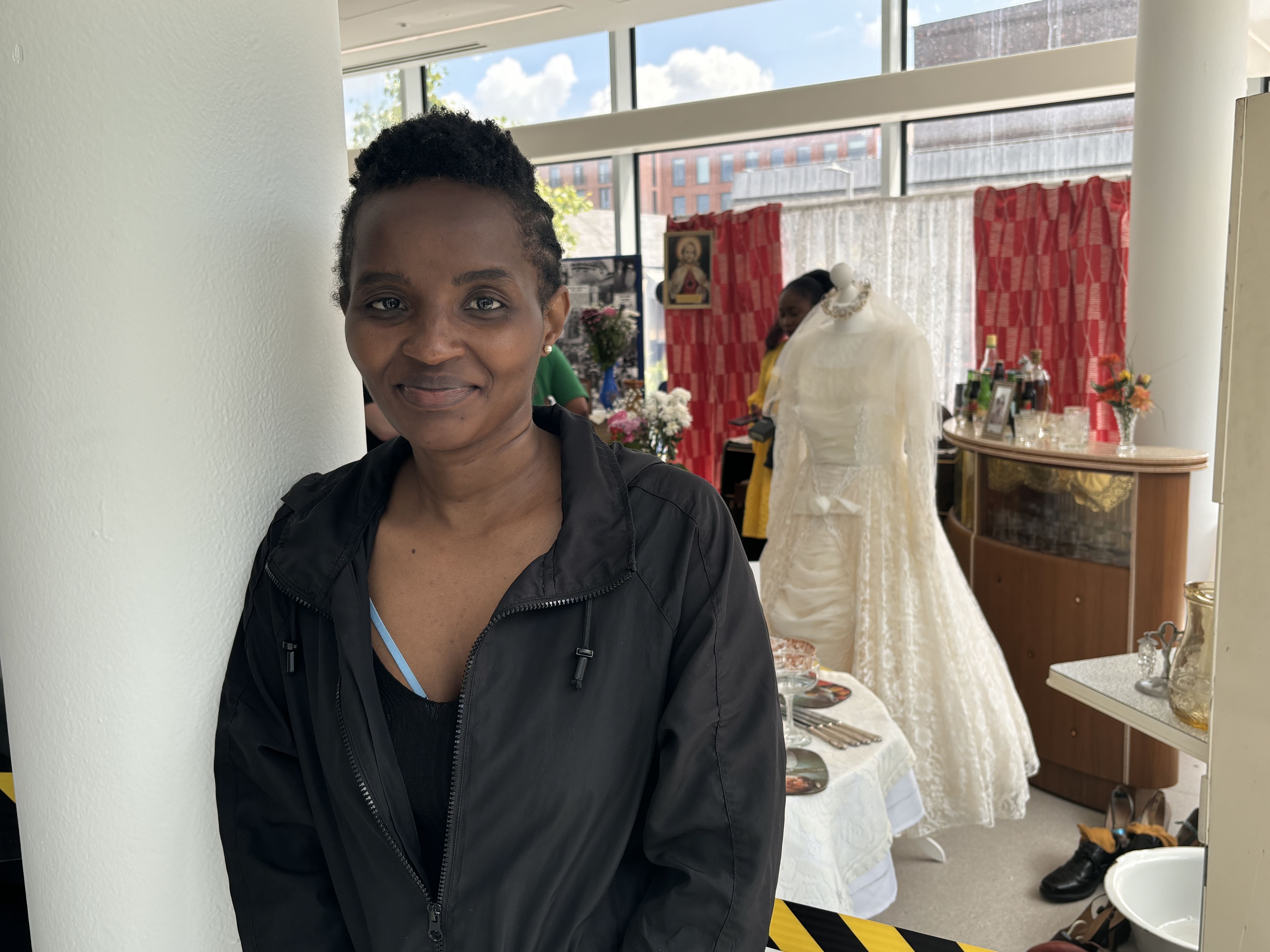
Yah, whose family moved to England from Jamaica at a similar time to the Windrush Generation, shared, "These rooms were really a place of comfort and solace amidst a very cold and discriminating experience in Britain."
She added, "We shared comfort, music, culture, camaraderie and unity here and it's amazing to pass on our history to other generations."
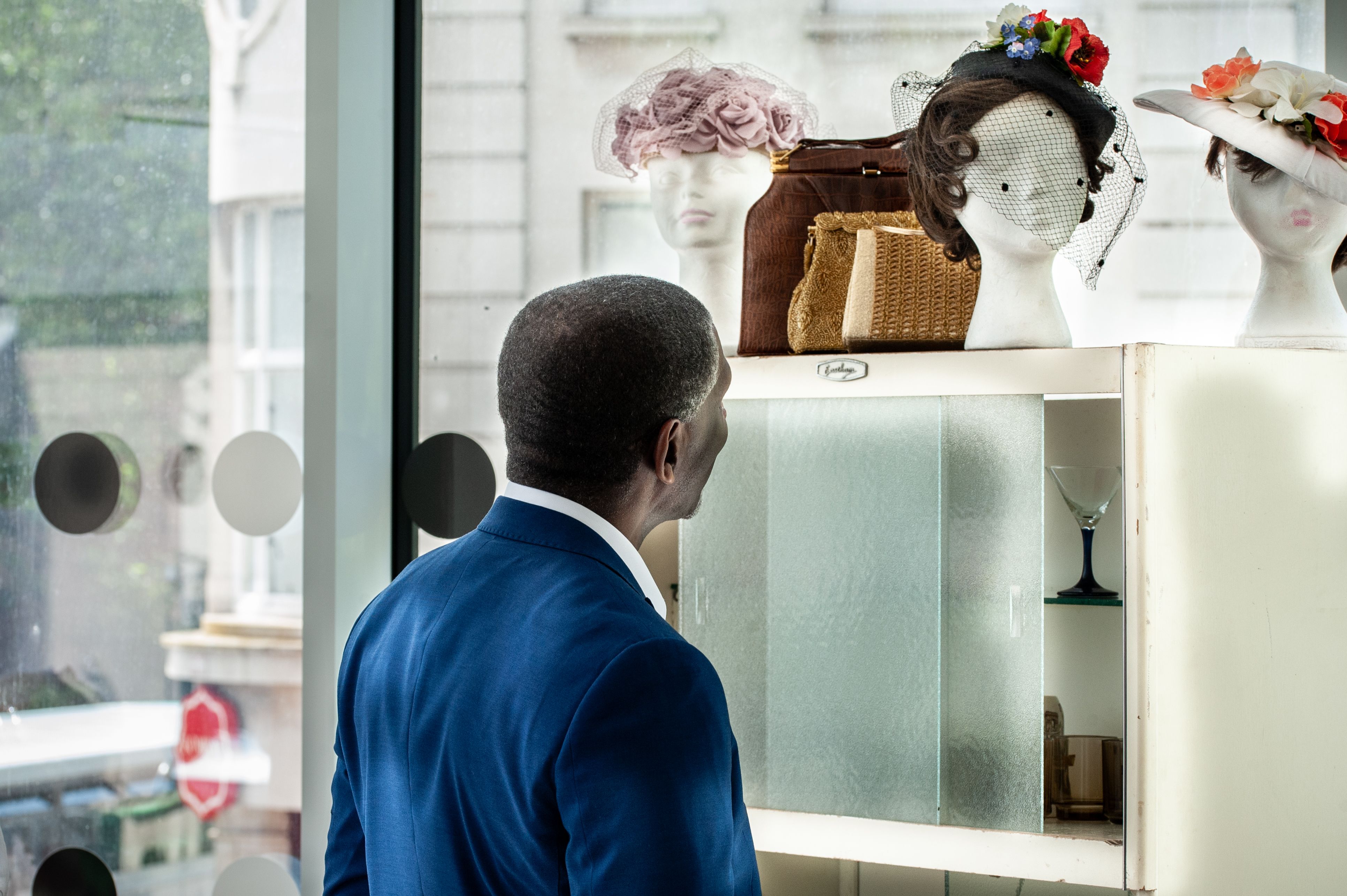
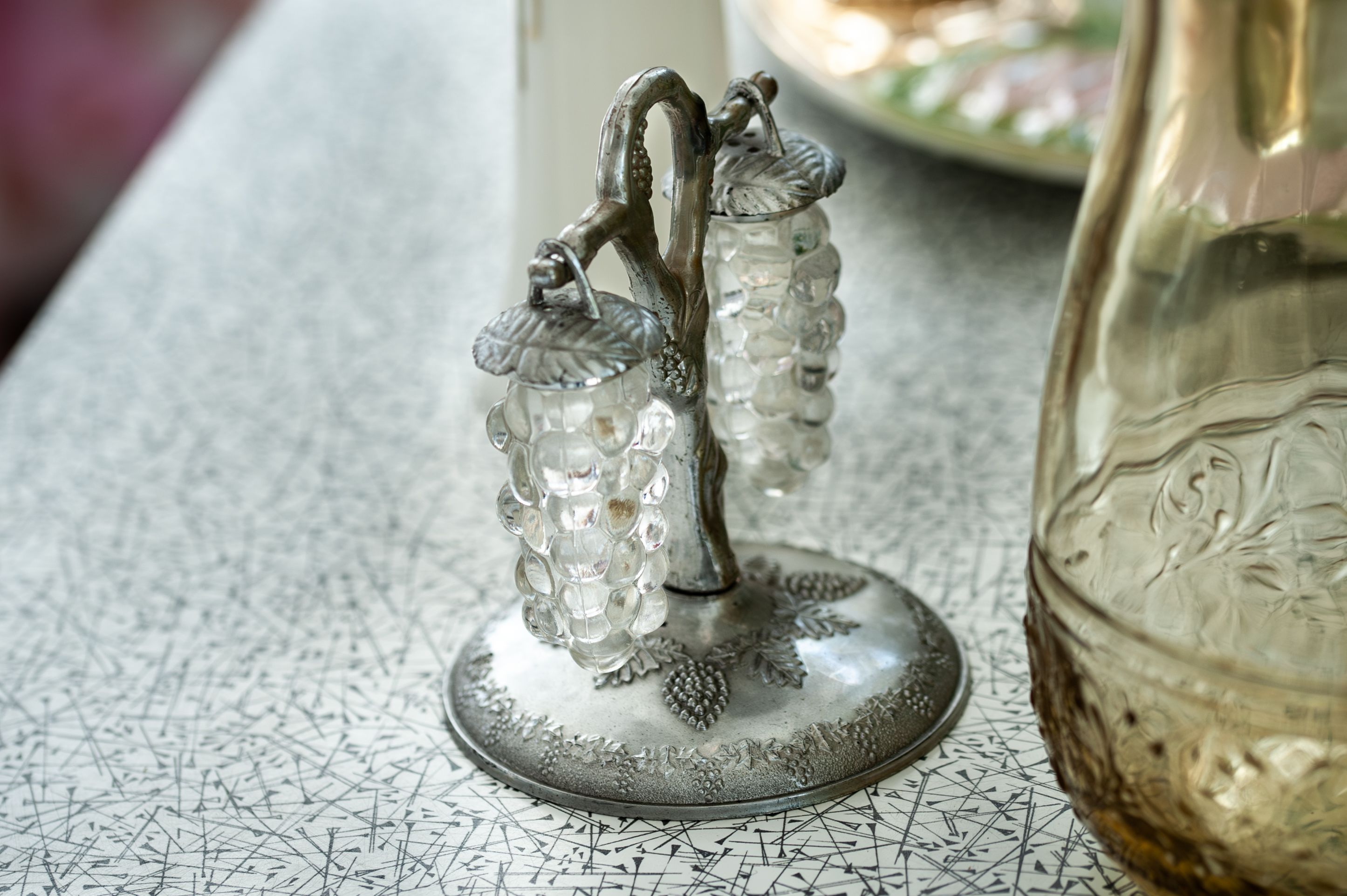
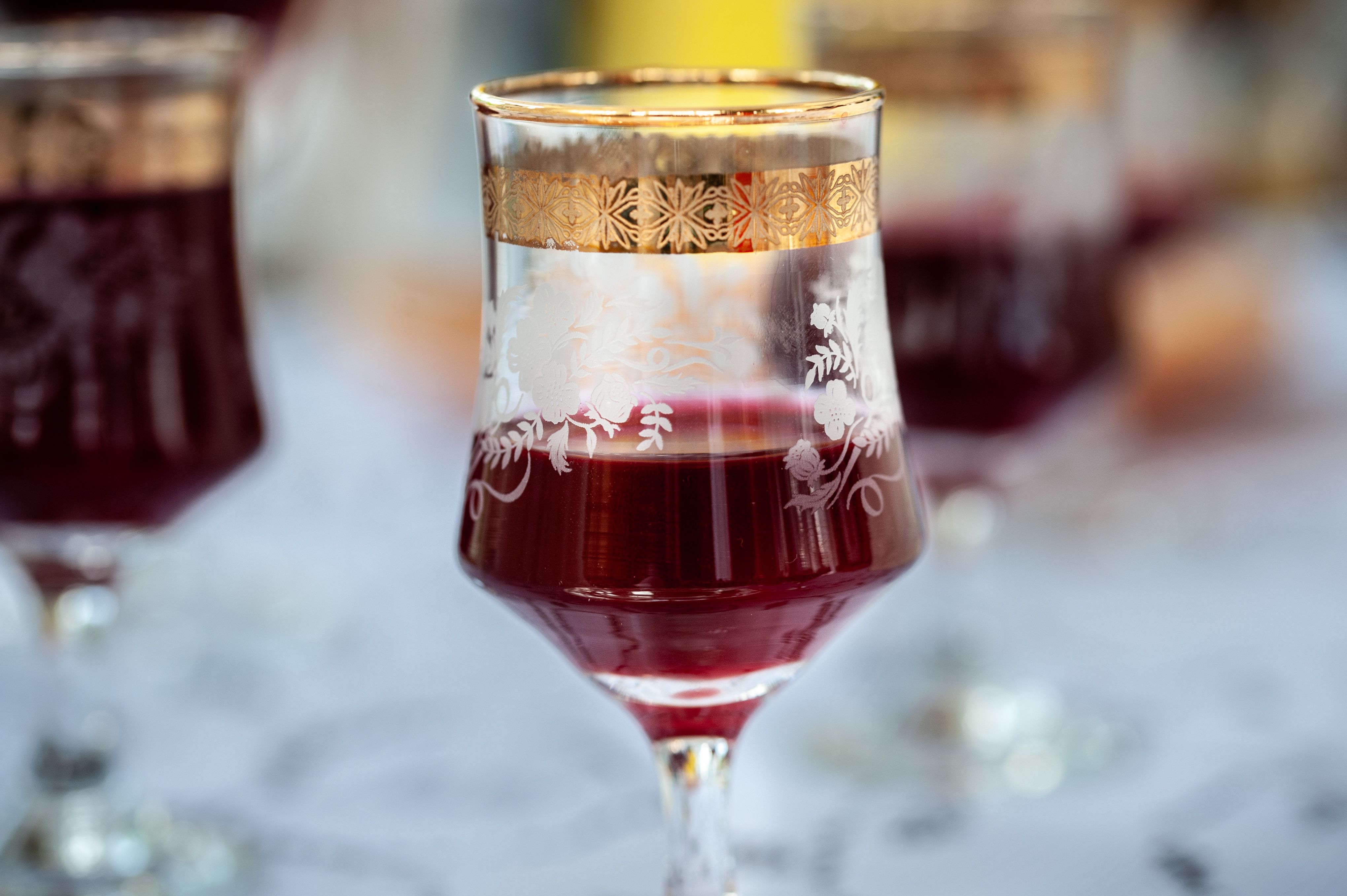
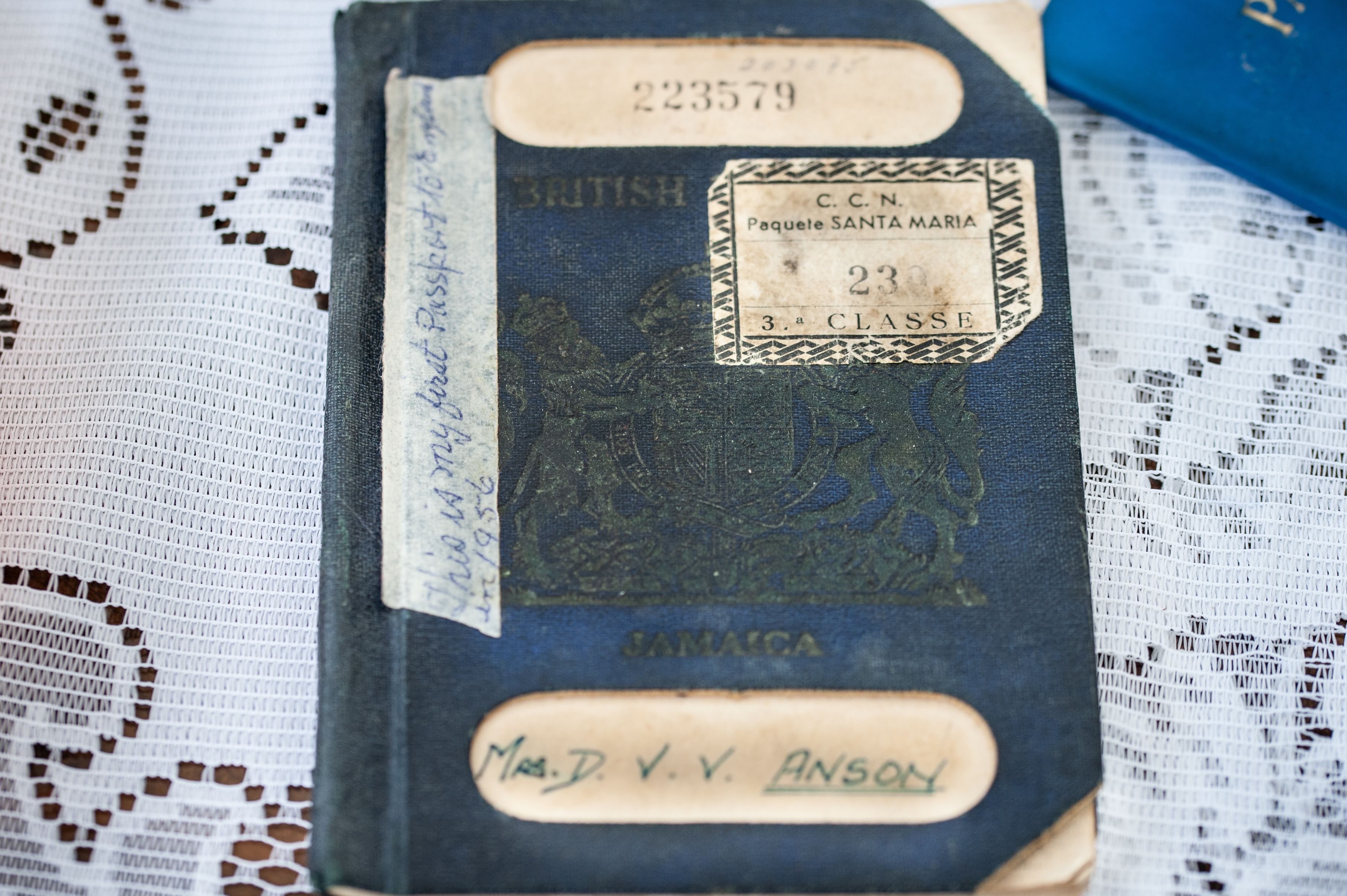
As the 6th annual Windrush Day celebrations in Nottingham drew to an end, the exhibition seemed like a perfect way to conclude the occasion, as broadly the day represented the importance of acknowledging our connection to the past.
With attendees reminiscing on their family history; the joys and hardships that their relatives underwent in the mid 20th century, it seemed that the spirit of the Windrush Generation now lives on more than ever.
"This day is about recognising the extraordinary contribution of the Windrush generation"
